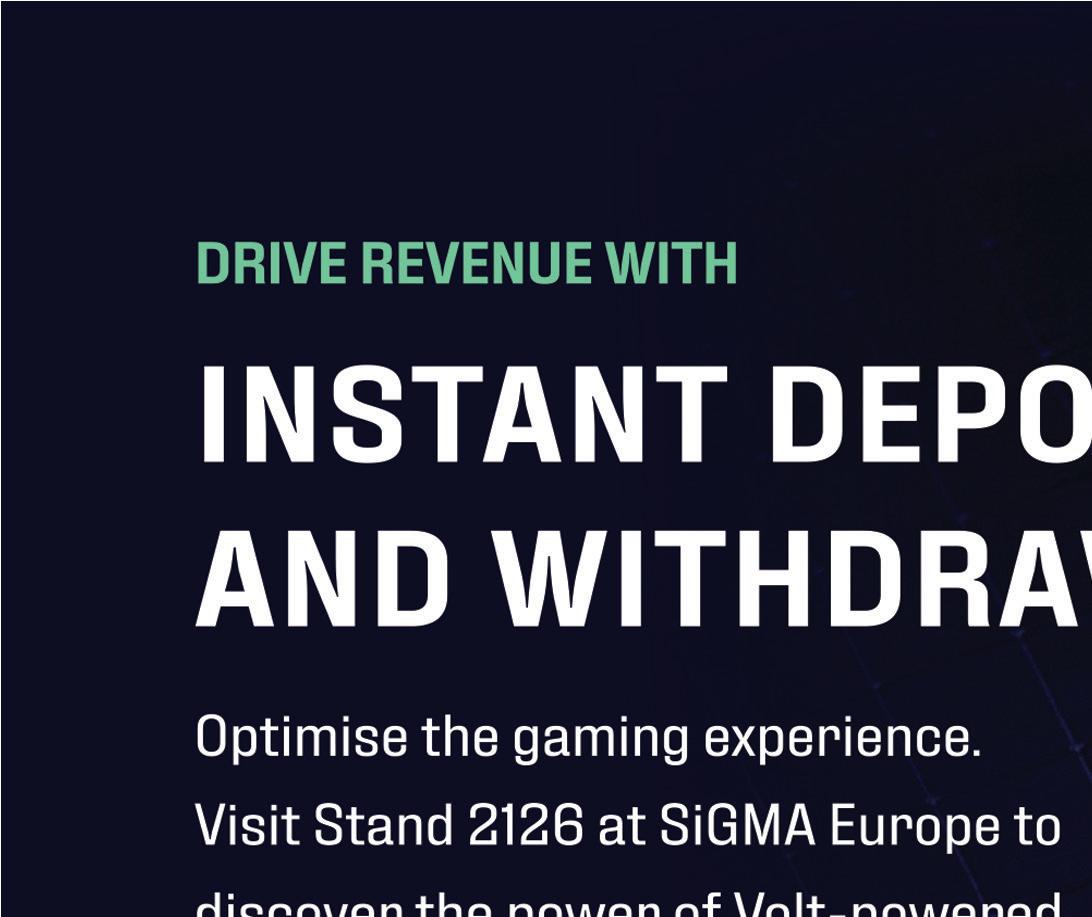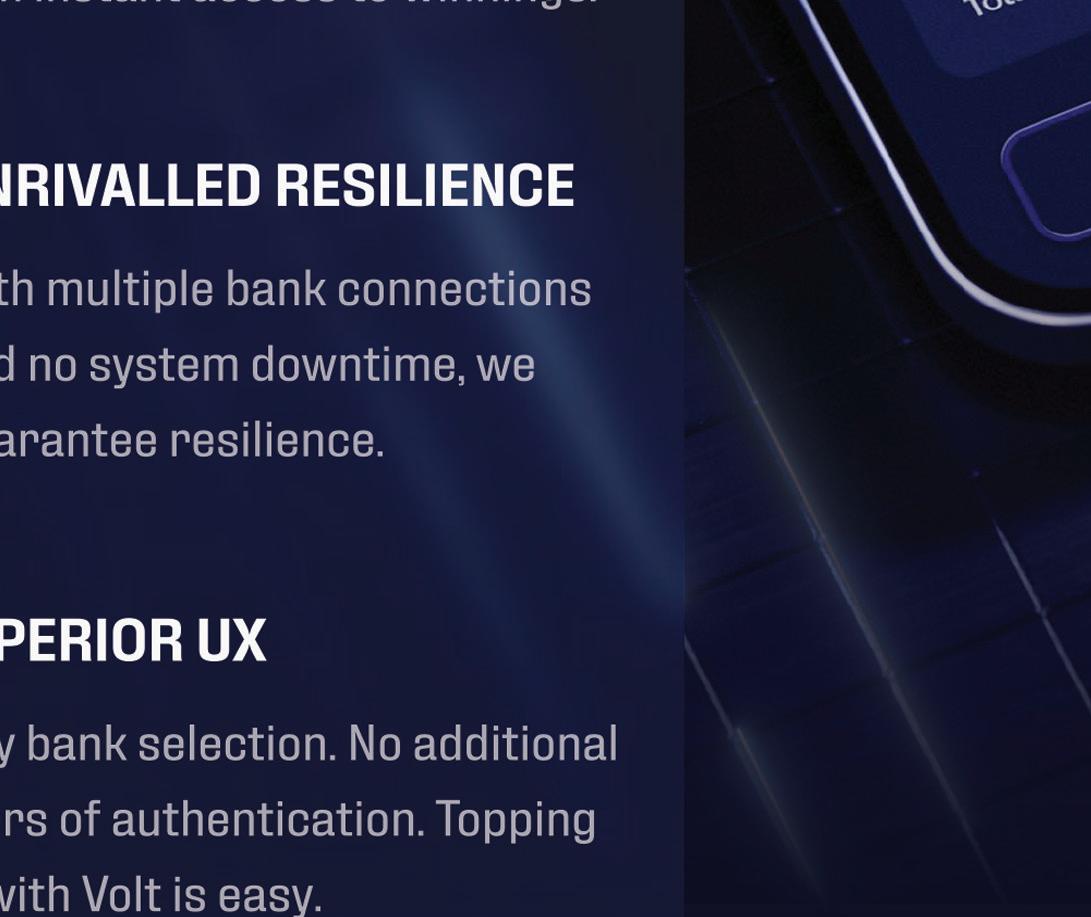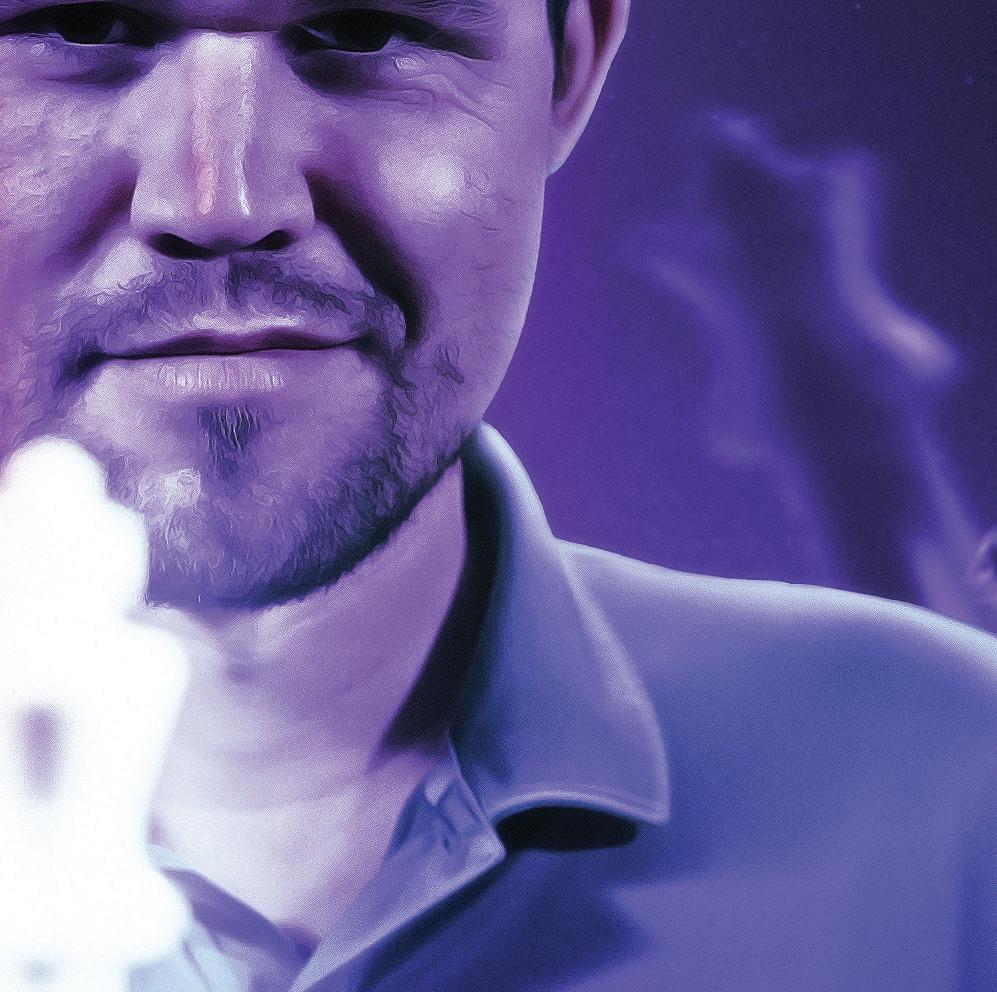MALTA FOCUS
AML in Malta & the rise of Ceuta? Q&A with MGA CEO & Betby CEO A who’s who of Maltese gaming

November 2024













AML in Malta & the rise of Ceuta? Q&A with MGA CEO & Betby CEO A who’s who of Maltese gaming

November 2024














When it comes to how we work, the Covid-19 pandemic had a lasting, undeniable impact.
In some cases, we look back in horror at having to cram our work computers into our living spaces four years ago and think ‘never again.’
More widely across the industry, however, the idea of working at home actually left a positive impact. In Malta – and iGaming more broadly – the idea of fully remote work has been embraced by tech companies and game design studios alike.
More commonly, as our cover feature explores through various interviews and statistics, companies are setting up a hybrid system. This way, employees regularly meet in groups at a physical office to preserve a sense of team togetherness, while additionally utilising the flexibility of not having to commute on certain days of the week (and allocate more time for childcare, chores and more).
As some of our interviewees point out, remote work suits certain vocations – one example given is recruitment – as the main action doesn’t happen 9-5 but in prime evening hours.
However, in the office vs remote debate, we quite often hear one-sided stories of the benefits of working in pyjamas, skipping train rides and saving time.
There are obviously productivity issues that are exacerbated when an underperforming employee is allowed greater freedom and scope to avoid deadlines; there are obviously human elements that are missed when people do not meet in person, and socialise at lunchtimes and after work; and there are obvious disadvantages to trying to train someone remotely when they can’t see or hear how the job is done all around them.
That’s why, in our cover feature of this Malta Focus edition, we try to present an objective assessment of all three sides: fully office-based, fully remote and hybrid. The overall concept most at stake across the three is that of company culture – and, whichever model you find most effective, the importance of culture cannot be underplayed.
Elsewhere in this issue, we of course provide our In Focus company profiles, featuring a host of organisations with prominent operations in Malta. Some tell us all about the company itself, while others – such as Soft2Bet – have used the space to talk about Bill 55, which pits Maltese law vs the EU. Ahead of the Global Gaming Awards EMEA’s move to Barcelona in January, meanwhile, we review some of the Awards’ biggest Malta-based winners from over the years. As time goes by, Malta’s impact on the wider gaming industry grows – as does the number of winners hailing from the archipelago.
We also preview SiGMA Malta (a show at which you may well be reading this very page…) and look back on a timeline of Malta’s history as a gaming hub. Further into the magazine, we hear from Malta Gaming Authority CEO Charles Mizzi, look into AML developments within Malta – and assess the growth of Ceuta as a potential rival hub.
All in all, as another year goes by in gaming, there is plenty to reflect upon, discuss and still so much to learn heading into 2025.
And that applies to everyone –whether you’re sitting in an office right now or reading this in your living room!
TP, Editor

COO, EDITOR IN CHIEF
Julian Perry
EDITOR
Tim Poole
Tim.Poole@gamblinginsider.com
STAFF WRITERS
Beth Turner, Will Underwood, Ciaran McLoughlin
CONTENT WRITER
Megan Elswyth
LEAD DESIGNER
Olesya Adamska DESIGNERS
Claudia Astorino, Callum Flett, Gabriela Baleva JUNIOR DESIGNER Medina Mammadkhanova
ILLUSTRATOR Judith Chan
MARKETING & EVENTS MANAGER Mariya Savova
ADMINISTRATION
Deepak.Malkani@gamblinginsider.com
Tel: +44 (0)20 7729
Irina Litvinova
Irina.Litvinova@gamblinginsider.com
Tel: +44 (0)207 613 5863
Serena Kwong
Serena.Kwong@gamblinginsider.com
Tel: +44 (0)203 435 5628 Max NGarry
Max.Ngarry@gamblinginsider.com
Tel: +44 (0)207 729 0643
Tracey Frost
Tracey.Frost@gamblinginsider.com
Tel: +44 (0) 203 882 9693
AWARDS SPONSORSHIP MANAGER
Michelle Pugh
Michelle.Pugh@globalgamingawards.com
Tel: +44 (0)207 360 7590
CREDIT MANAGER
Rachel Voit
WITH THANKS TO:
Jennifer Innes, Cordelia Morgan-Cooper, Christine Parkhill, Chanelle Demanuele, Hannah Ward, DS Virtual Gaming, Giorgi Tsutskiridze, Ollie Castleman, Habanero, Andrea Giuliani, Natalie Agopian, MiFinity, Xanada Investments, Lena Nordin, Jonathan Vintner, Swintt, Valeriia Virchenko, Lili Piper, Alla Serebrianskaia, Leonid Pertsovskiy, Charles


















10 TIMELINE: MALTA
Malta is one of the biggest hubs in iGaming. Gambling Insider looks at the history of the nation’s longstanding association with online gaming
12 THE BEST OF MALTA AT THE GLOBAL GAMING AWARDS
We look back at several of the winners originating from Malta at the Global Gaming Awards EMEA
14 PREVIEW: SIGMA MALTA
SiGMA returns to the home of iGaming for the final major gaming summit of 2024
28 A DUTY OF CARE
MGA CEO Charles Mizzi talks about the changes he’s made since his appointment earlier this year
36 OFFICE VS REMOTE
We investigate the status of office and remote work within Maltese iGaming, and how the way we work is changing
46 THE BENEFITS OF BOTH
Keeping in line with our cover feature, we asked Betsson Group Chief HR Officer Lena Nordin for her thoughts on office vs remote
50 AML
Gambling Insider speaks to the Malta Financial Intelligence Analysis Unit (FIAU) to discuss how operators can stay one step ahead


























56 A BURGEONING HUB

Gambling Insider sits down with Spanish Gaming Law specialist –Alla Serebrianskaia – to find out more about the city of Ceuta
60 SPORTS BETTING
Betby CEO Leonid Pertsovskiy speaks to Gambling Insider about how the sports betting supplier can stay competitive in such a big market





Malta is one of the biggest hubs in iGaming. Gambling Insider looks at the history of the nation’s longstanding association with online gaming
On Halloween eve in the early 1920s, the official Lotto Regulations were passed by the Maltese Government, which decided to absorb the Italian model of lottery at the time.
The LGA announces the formulation of a new licensing regime for online gaming – including online casino, sports betting & lotteries – in Malta.
Ahead of its imminent EU entry, Malta introduces a new online gaming regulatory framework which allows local gaming operators to expand into EU nations.
Malta officially enters the EU alongside Cyprus, Czech Republic, Estonia, Hungary, Latvia, Lithuania, Poland, Slovakia & Slovenia as part of its largest enlargement to date. Malta is the first EU nation to regulate online gaming.
The Maltese online gaming industry generates €2bn ($2.23bn) in turnover for the year –estimated to rise to €5bn in 2007.
80 years on, the Maltese Government published the updated Lotteries and Other Games Acts, which details the formation of a Lotteries and Gaming Authority (LGA).
A referendum among EU membership states unanimously approves the entry of Malta into the European Union. Betsson Group becomes one of the first online gaming operators to enter the Maltese market through its BML subsidiary.
The Malta Remote Gaming Council is commissioned for the management of the public consultation process as the nation seeks to establish itself as the first iGaming hub in the EU.

The LGA rebrands to the Malta Gaming Authority, a reflection of the worldwide recognition of the jurisdiction’s significance in the global online gambling industry.
The Maltese Government introduces a new Gaming Act, extending the MGA’s intervention powers and introducing a stricter, albeit much less bureaucratic supervision of online & land-based operators on the island.
After weathering the storm of the Covid-19 pandemic, the MGA falls under the EU’s AML microscope for allegedly allowing $74.2m to be laundered from Sicily through one of its licensed sites.
A year later, Malta is voted off the FATF grey list. Emergency regulations from the gaming industry are a significant contributor to the reduction in financial crime in the nation.
Governmentally ranked tax contributions from Malta’s iGaming industry reach €52.5m for the year, as the nation reaches 2,500 online gaming employees.
A KPMG study reveals that gaming revenues in Malta now account for 10% of the nation’s overall Gross Domestic Product GDP.
The MGA’s annual report reveals tax receipts of $1.4bn12% of the nation’s GDP – in 2019. However, it also reveals a fast-growing need for enhanced player protection & AML measures.
The world’s money laundering and terrorist financing watchdog, Financial Action Task Force (FATF), adds Malta to the grey list of untrustworthy jurisdictions –subjecting the nation to enhanced monitoring.
Malta remains one of gaming’s key global hubs, 10% of the world’s online gaming companies are registered in Malta & an MGA licence is one of the industry’s most prestigious approvals.


Powered by Gambling Insider, the Global Gaming Awards are the gaming industry’s most prestigious. With the EMEA edition coming up to its eighth edition in January, we looked back at a few of the winners originating from Malta

































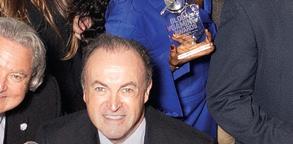
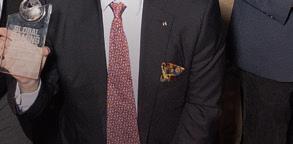









The eighth Global Gaming Awards EMEA are set to take place on 20 January 2025. The coming ceremony will be the rst away from The Hippodrome Casino and, indeed, the UK, following ICE to Barcelona. This time, the event will be held at The Market Restaurant at Fira Barcelona Gran Via, on Day 1 of ICE 2025 –a new environment for the Awards that is sure
































scooped an Award (or two) over the years from the iGaming hub of Malta. Since 2018, wins by Maltese businesses have





slowly grown, from two wins in 2018 by the Malta Gaming Authority (MGA) and NetEnt to five wins in 2024 by Pragmatic Play (winning in both the Online Casino Supplier of the Year and Product Launch of the Year), Relax Gaming, Continent8 Technologies and Betsson.
Let’s take a look at a few of the highlights...


The MGA has been at the forefront of iGaming regulation for over 20 years, forming in 2001. As one of the oldest iGaming regulators in the industry, the MGA has played a significant role in shaping how compliance is administered both in and outside of Europe, while also allowing Malta’s iGaming market to be one of the market’s strongest. There is a reason why gaining an MGA licence and a Malta location is so important, after all.

PROVIDER
While renamed to simply ‘Services Provider of the Year’ from the 2021 awards onwards, the categorisation remains much the same, with Continent 8 being the most frequent winner of this category over the past seven ceremonies. Other winners included the MGA in 2018, Sportradar in 2021, Internet Vikings in 2022 and Enteractive in 2023 (three of which are also strongly associated with Malta).
Continent 8 Technologies offers four main services. These include connect8, offering transit, MLPS and cloud
exchange services, manage8, offering co-location, private and public cloud, IAAS and live dealer and streaming services, secure8, offering DDOS, WAAP and EDR & MDR services, and AWS Marketplace, which offers managed and professional services via Amazon’s AWS Marketplace.
On its 2024 win, CEO Michael Tobin commented: “It’s ironic that it’s been 25 years since Continent 8 Technologies has been participating in the industry and it’s our first trip to London. I never anticipated what 25 years would do for our business.”


PRAGMATIC PLAY: DOUBLE WINNERS, 2023 AND 2024
While consistency deserves merit, so too does making a splash. This was something Pragmatic Play achieved in 2023 and 2024, scooping two Awards in each of these years.
In 2023, Pragmatic Play won the title of Online Casino Supplier of the Year, and also won the Online Slot of the Year title for its game Sugar Rush. The game, which utilises a 7x7 grid and an art style reminiscent of Candy Crush, is now available via a range of operators including Paddy Power, Admiral, Betfred and others.






Meanwhile, 2024 saw a win, once again, as Online Casino Supplier of the Year, but also in the Product Launch of the Year category, for its Treasure Island game. The live casino game takes on an Indiana Jones-like aesthetic, with players spinning a wheel of gems, bonus games and instant bonuses with a chance to win prizes. At the 2024 Awards, Pragmatic Play representatives commented: “We’re very proud to win two Awards here. One for slots and one for live casino. Both are big focuses for us.”




















After being won twice in a row by Kindred Group, Betsson Group took home the title of Social Responsibility of the Year at the 2024 Awards. The category took the ethos of ‘the betterment of society is not a job to be left to a few. It’s a responsibility to be shared by all,’ as we wrote in our 2022 GGA EMEA Shortlist issue. Indeed, social responsibility in the face of the Covid-19 pandemic was certainly a hot topic, but three years on, the importance of this issue should not be overlooked. On the win at the 2024 Awards, CEO Jesper Svensson said: “It feels amazing. It’s a great Award to be recognised for. It’s something we care dearly about so I’m really glad.”

Aside from the new location (which, hopefully, will provide slightly nicer weather than a typical British February), guests should expect the same level of occasion and celebration from the Global Gaming Awards. But can trends from the past few years give any indication of what to expect? As previously mentioned, Maltese representation among winners of the Awards has steadily increased since 2018, with both 2023 and 2024 seeing five winners from the island nation. If this trend is anything to go by, there is a good chance we will see similar triumphs next year.
Maltese businesses such as Continent 8 and Pragmatic Play have shown a capacity to earn multi-year wins (and multi-category wins), meaning there is a good chance a previous Maltese category winner will be in with a chance of winning this year too.
Either way, the contribution of the Malta to the global iGaming scene is only increasing each year. We look forward to seeing you all in January. Buena suerte!
















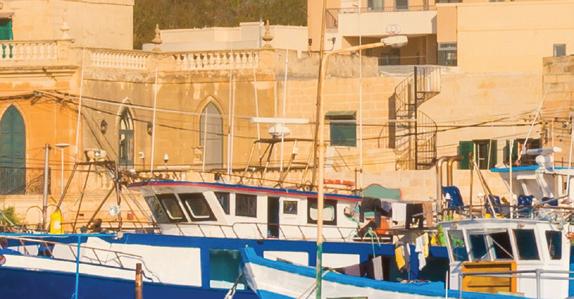














The year’s nal quarter has snuck around again. However, before we turn the lights out on 2024, the final SiGMA show of the annual calendar heads to Malta. Affectionately known as the Land of Honey, Malta has – of course – proved to be exactly that for the online gaming industry over the last 25 years. Now, as it is every year, the SiGMA Europe Summit in Malta will be held in the nation’s eternally sun-bathed capital of Valletta at the Mediterranean Maritime Hub (MMH) facility.
Boasting an extensive space of 165,000 square metres – the MMH will, once again, play host to some 27,000 delegates from all four corners of the global gaming industry. Indeed, the event has certainly grown since its first iteration back in 2014, which saw an influx of around 1,000 attendees. Now, the summit’s 10th anniversary yields an
entirely different scale and continues to grow year-on-year, with SiGMA reporting record demand for this year’s show.
Attendees will have access to two official SiGMA Malta parties, two cultural activities, five networking sports sideevents and five official ‘chill out lounges.’ An expected 1,000+ sponsors and exhibitors will contribute towards the display, paired with a total of 550 speakers uncovering a range of the hottest topics across key areas of the industry. A total of 13,000 operators and affiliates are also expected to flood the island for the conference. Finally, luxury maritime enthusiasts will be fascinated to learn that, this year, SiGMA Malta includes four official mega yachts that have been turned into booths for delegates to explore.
Prior to the event, SiGMA will be running its affiliate retreat for 50 top affiliates and six operators in Marrakesh,
with pre-registration and warm-up conferences being held on 11 November before the commencing of the first day of the event.
Every year, the SiGMA Malta Summit seeks to reflect on the evolutionary efforts made by industry members all over the world; as well as the future outlook for the year(s) ahead. Subjects such as technology, responsible gaming, new global markets, licensing, regulation and more are all on the agenda as the event kicks off its first day on 12 November 2024.
The morning of day 1 on the SiGMA stage in Malta is entirely centred around talks regarding regulation and compliance. Panels on the Maltese and wider EU landscape will be followed by panels discussing regulation and compliance in the Americas, Africa and the Middle East. Conversation in the afternoon begins with talks surrounding

tech innovation – which has come a staggering distance thanks to the continuous rise in AI this year, changing approaches form payments to personalisation industry-wide. Soft2Bet CEO Uri Poliavich is set to be the keynote speaker.
Over on the AIBC Stage, the day kicks off with talks on crypto & digital asset trends. The evolution of crypto narratives through 2025/26 will start the conversation, with crypto legislation in the EU also on the agenda. Conversations around blockchain and the digital economy will be followed by talks from celebrity female entrepreneurs in gaming. Closing out the day on this side of the summit will be talks on sport tech and web3 gaming innovation.
Looking back at the first ever SiGMA Malta summit 10 years ago, 2014 saw Malta’s iGaming revenues climb, as the online gaming industry was beginning to truly flourish. The landscape was on the edge of a precipice – and the transformation it would take, both globally and within the cosy confines of Maltese borders, would be enormous. Indeed, online gambling in Malta has changed the very DNA of the archipelago, bringing jobs to communities and attracting foreign investment. However, the country has had to deal with a range of challenges, many of which have revolved around AML, that have stemmed from both land-based gambling and iGaming, too.
Nevertheless, Malta remains something of an end-of-the-rainbow-like promised land for online gaming and in 2024 the industry now accommodates for around 12% of the country’s overall GDP.
Moving on, then, to day 2 – which begins on the SiGMA stage with talks on everything casino – from land-based to online, and crypto to next-gen. This panel section concludes with a talk on blending online and offline gaming experiences, featuring Jade Group CEO Joe Pisano, Quantum Gaming CEO Oliver De Bono, Ulrik Bengtsson and more.
This will be followed by discussions surrounding social dynamics and player engagement. The link between API governance and customer trust, as well as leveraging loyalty programmes and the impact of social media will all be explored during this panel section.
During day 2, there will be a 20-minute segment on the main stage entitled, ‘Clash of Alliances: The Affiliate-Operator Showdown,’ a live quiz show in which selected affiliate and operator participants compete in two teams. Then, the rest of the afternoon on the SiGMA stage will revolve around influencer and affiliate market talks. Over on the AIBC stage, day 2 is dominated by talks, debates, panels and workshops all designated to the exploration of AI technologies and their applications within the gaming industry.
Day 2 concludes with a jam-packed evening of post-panel options, including networking drinks, product, compliance and affiliate-operator iGatherings, followed by the Centurion MMA fight – and finally the 10 years of SiGMA party. The anniversary party will be held at the Sky Club near the Dragonara Casino and will run until 4am.
SiGMA Malta’s final day commences with panels on esports and sportsbooks

on the SiGMA stage, with the keynote speaker – Co-Founder & COO of Altenar, Dinos Stranomitis – discussing the rise of microbetting. Previous speaker, Joe Pisano, will also host a panel exploring esports and sportsbook trends and predictions for 2025. A commitment to ESG & CSR panel with respect to navigating stakeholder expectations will be run around midday, followed by talks on payments and finally a future of iGaming section – featuring a women in gaming panel.
The summit will conclude over on the AIBC stage, with the start-up pitch competition offering young, budding entrepreneurs a chance to showcase their new startup organisations and connect with investors, alongside VCs.
Hosted in November of every year, SiGMA Europe in Malta signifies the annual turn into the final straight, the Q4 conclusion that comes before the industry begins to shake itself up again for another busy year. However, it also provides us the opportunity to reflect on the busy year that now lies behind, and the progressive initiatives, mergers, takeovers, technological advancements and regulatory changes that have changed the global landscape. 2025 looms large with a few certainties ahead, the imminent regulation of the Brazilian market, despite being discussed to near exhaustion, remains one of the most exciting developments on the horizon. However, as is so often with the gaming industry, nobody can quite predict what waits around the corner. So what will we learn at SiGMA this year?
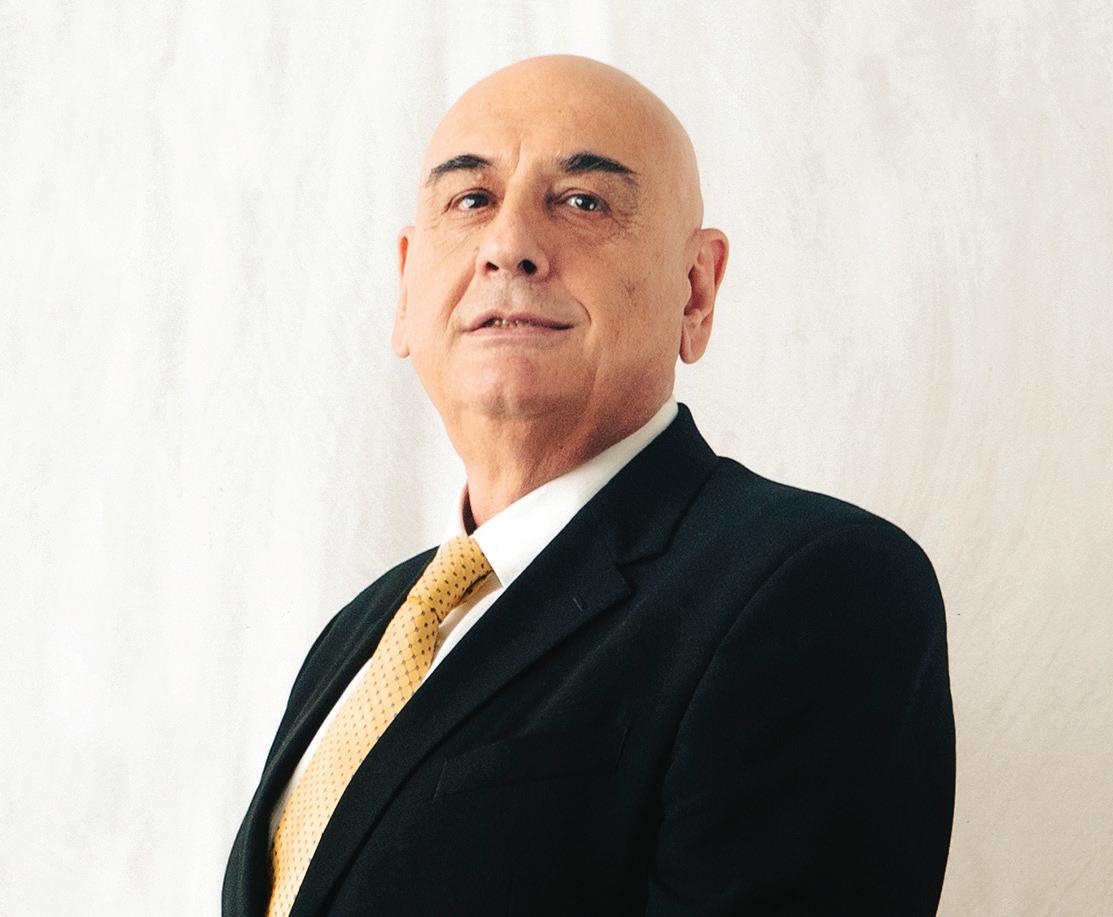
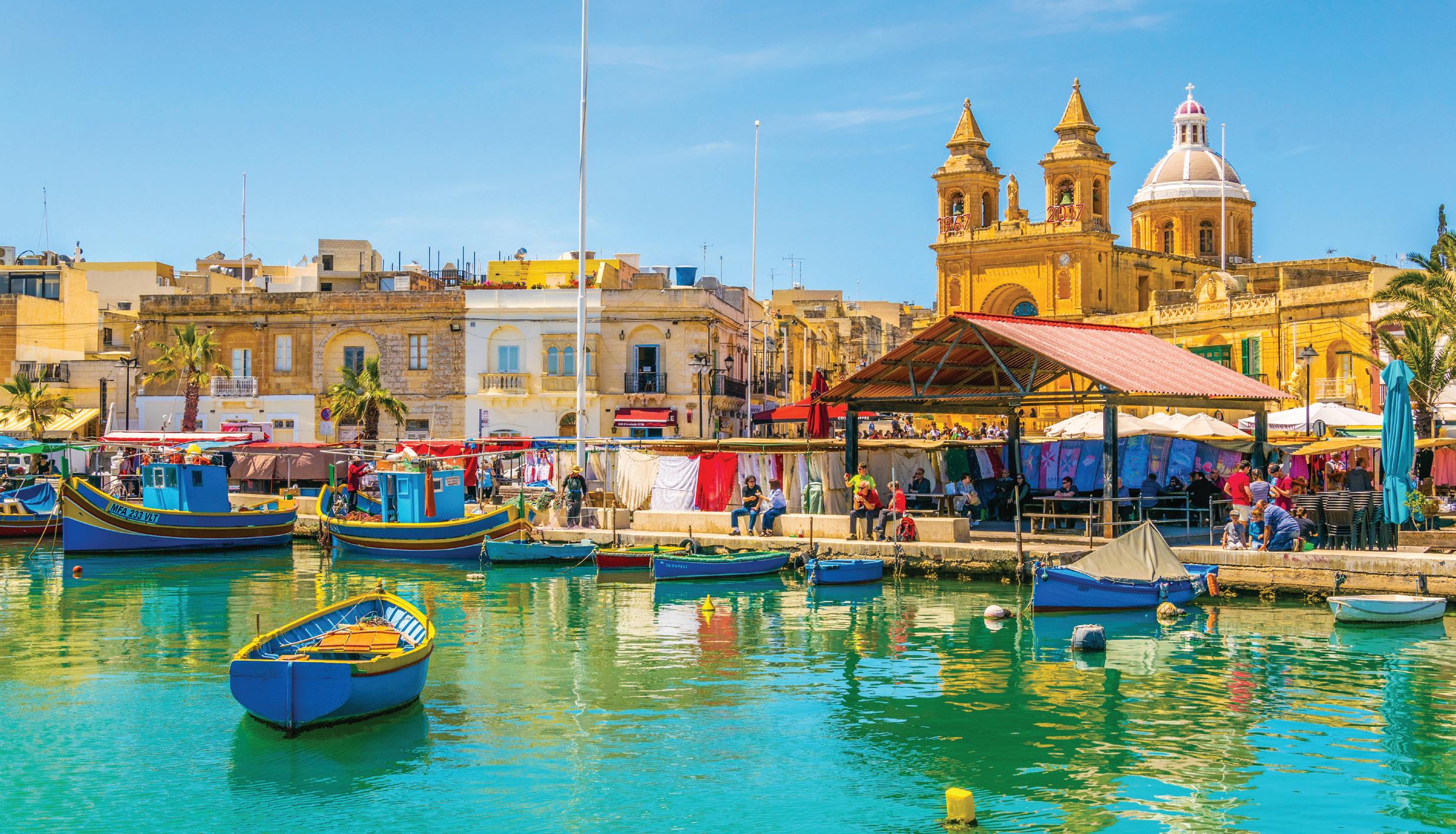
Ohad Straschnov, Senior Compliance Director at Soft2Bet , explains how Bill 55 impacts Malta and the operators licensed on the island, and how Soft2Bet has addressed European regulation in some of the continent’s key markets over the past 18 months.
Malta’s Bill 55, introduced in June 2023, seeks to safeguard Malta’s gaming industry; a significant contributor to the country’s economy. The bill stipulates that judgments from foreign courts against Maltese gaming operators will not be recognised or enforced in Malta if they relate to legal activities under Maltese law. This provision directly addresses cases where operators face legal actions in other EU member states for offering online gambling services, which may be illegal or restricted in those jurisdictions.
However, this legislation has drawn criticism and raised significant legal and operational challenges for Maltese operators within the European Union.
Bill 55’s primary advantage is the legal shield it provides Malta-licensed operators. While local courts will not recognise or enforce foreign judgments, operators can avoid significant fines or penalties from other EU countries. Secondly, Malta’s reliance on the EU’s free movement of services is reinforced under Bill 55. The bill allows operators to continue serving players across EU markets without fear of legal retaliation in each jurisdiction. This provides a legal foundation for cross-border services as long as operators comply with Maltese regulations. By insulating operators from legal threats across the EU, Bill 55 creates a stable environment for iGaming companies to grow.
While Bill 55 offers protection within Malta, it does not shield operators from legal actions or financial penalties imposed by other EU states. This creates a complex legal landscape for Maltese operators, who

Ohad Straschnov, Senior Compliance Director, Soft2Bet
must navigate conflicting regulations across different jurisdictions.
While Bill 55 offers numerous benefits, it has also attracted attention from the European Commission. Various EU countries argue that the bill undermines EU Regulation, which mandates the mutual enforcement of court rulings across EU member states. If the European Commission finds Bill 55 in breach of EU law, Malta could face demands to revise or revoke the legislation, exposing operators to foreign legal actions.
Should EU member states challenge Bill 55, there is a risk that the issue could escalate to the European Court of Justice (ECJ). A ruling from the ECJ against Malta would likely weaken or nullify the protections offered by Bill 55, leaving operators vulnerable to penalties from foreign jurisdictions.
Bill 55 offers substantial advantages for Maltese operators. However, it also poses significant legal and operational challenges for Maltese operators in the EU. It remains to be seen how well operators can navigate these challenges, adapt to a rapidly changing
regulatory landscape and contribute to ongoing dialogue on the future of online gambling regulation in the EU.
The challenges posed by Bill 55 highlight the broader issue of the fragmented regulatory landscape for online gambling in the EU. There is a growing call for more harmonised regulations at the EU level to reduce conflicts between national laws and ensure a more consistent legal framework for operators across the EU.
It’s important to remember that Matla is a tier-one iGaming jurisdiction that offers a stable political and legal framework for operators and providers. However, as the European Commission and EU member states continue to call for a review of the Bill, Maltese operators will need to remain adaptable and proactive in responding to the evolving regulatory environment. This may involve diversifying their markets, investing in compliance infrastructure and engaging with policymakers.
Meanwhile, Soft2Bet keeps a close watch on these developments and will maintain its substantial presence in Malta. At the same time, we have also significantly expanded our regulatory footprint in the past few years, obtaining licences in various key EU markets such as Greece, Sweden, Denmark, Italy, Romania and others. Soft2Bet remains fully committed to maintaining a robust and comprehensive compliance strategy across all the markets in which we operate. By adhering to regulatory frameworks and industry standards, we ensure that our operations are not only fully compliant but also promote trust and integrity.
This approach means we were able to quickly expand and launch B2C brands such as Betinia, Winota, Cadabrus, Light Casino, Yoyocasino and Campobet in highly regulated countries. This approach also goes hand in hand with our turnkey solutions for B2B partners. It enables swift expansion and launch into new markets, ensuring they are up and running within optimal timeframes.
MEGA
(Motivational Engineering Gaming Application)

CASINO INTEGRATIONS
PLAYER ACCOUNT MANAGEMENT

MANAGED SERVICES PAYMENTS
SPORTSBOOK INTEGRATED SOLUTION


DS Virtual Gaming is a leader in the gaming industry, utilising state-of-the-art technologies to transform virtual gaming experiences. Established in 2005, the company is built on a foundation of innovation and a focus on customer needs. DS Virtual Gaming has effectively merged traditional land-based operations with modern online platforms, serving a varied international audience.
Founded in Austria, the birthplace of waltz and the heart of classical music, DS Virtual Gaming aims to seamlessly harmonise land-based and online gaming experiences, recognising the unique benefits and appeal of each. Our vision is to offer players easy access to our diverse selection of games, catering to those who appreciate the convenience of online platforms; as well as those who prefer the lively environment of physical betting shops. By harnessing technological innovations and market insights, we continually enhance our offerings to meet the evolving preferences of the global gaming community.
At the heart of DS Virtual Gaming’s success lies our extensive portfolio of virtual games, expertly designed to deliver both entertainment and fairness. Each game is built on thorough statistical analysis and employs random number generators, similar to real sports, ensuring integrity and excitement for players. Our commitment to technological excellence provides players with exclusive HD-quality transmissions and seamless gameplay across a variety of devices, including desktop computers, POS terminals, singleplayer terminals and mobile platforms. This
dedication to innovation positions us as a leader in the virtual gaming landscape.
DS Virtual Gaming is dedicated to standing out as a unique entity in the gaming industry. We hold exclusive rights to all the transmissions used in our gaming offerings, positioning us as the official representative for various racetracks. This initiative not only enhances our product portfolio but also fosters the growth of iconic venues such as Towcester Racecourse in the UK and Kincsem Park in Hungary. By showcasing these racetracks globally, we increase their visibility and attract greater attention to their activities, contributing to their overall success and sustainability.
At the heart of our gaming offerings lies our commitment to providing the best odds, ensuring the highest hit rates for players. We understand that punters are more likely to return to games that offer them the greatest probability of winning. Beyond competitive odds, we enhance player loyalty with special promotions, such as rounds where winners can double or triple their earnings, creating positive experiences. The highlight of our offerings is our rapidly growing jackpot, which is unified across both online and land-based platforms, elevating the excitement and emotional engagement for players.
At DS Virtual Gaming, we recognise that virtual games captivate punters through their speed and simplicity. That’s why delivering swift gaming experiences is our top
priority, regardless of where they are played. Currently, we maintain a minimal delay of just 200 milliseconds, even in regions with significant internet challenges. This ensures a seamless, uninterrupted connection to our servers, allowing players to enjoy nonstop gaming action.
At DS Virtual Gaming, we firmly believe that the best way to support our partners and operators is to acknowledge the challenges they face with illegal operations and refrain from encouraging such activities. We operate exclusively with certified and licensed providers, ensuring compliance with the regulations of various markets. Currently, we hold licences in Malta, Italy, the UK, Panama, Peru, Colombia, Puerto Rico and Ontario. We also possess CLI-19 certification and are awaiting GLI-33.
The Maltese regulatory framework has significantly influenced gaming regulations across Europe, establishing itself as a cornerstone of the industry. This licence has been essential for operations in many European countries, many of which have developed their own regulations since. As such, Malta can be regarded as the birthplace of the European gaming sector. We are proud to hold a Maltese licence and are deeply invested in this market, respecting its challenges and demands. Our focus remains on maintaining high-quality standards across all markets where we are licensed and certified. We are excited to announce that we will soon be sharing some noteworthy achievements that reflect our commitment to excellence in the industry.



future and the vision: CCO Giorgi Tsutskiridze explores Spribe’s path to leadership, and the techniques it uses for market success
In the fast-evolving world of iGaming, companies must innovate and remain forward-thinking to stay competitive. Spribe exemplifies this approach, positioning itself as a leader in the industry by focusing on the future and maintaining a clear vision for growth. As the industry rapidly transforms, Spribe is committed to staying at the forefront of innovation, not only through its products but also through its strategic planning and commitment to shaping the future of gaming.
From the beginning, Spribe has been linked with innovation in the iGaming sector. The company is best known for developing unique gaming experiences that cater to modern audiences, including its flagship product, Aviator. Aviator introduced a new type of multiplayer social gaming that blurred the lines between traditional and social gaming, setting Spribe apart in the market. Beyond Aviator, Spribe has expanded its portfolio to include a variety of games, creating immersive and interactive experiences for users worldwide. The company’s focus on pushing the boundaries of traditional online gaming is central to its long-term vision and strategy for future growth.
The iGaming industry is marked by rapid technological advancements and evolving regulatory environments. Spribe’s ability to adapt to these challenges highlights its resilience and forward-thinking approach. While some companies struggle with shifting market conditions, Spribe has demonstrated agility in navigating these changes. Key to Spribe’s success is its proactive approach to regulatory compliance. Operating in highly regulated markets like Malta, the company adheres to strict standards to ensure that its products are safe, fair and secure for users. By embracing regulations as opportunities
to build trust with players and partners, Spribe positions itself as a leader in both innovation and integrity.
Spribe’s vision extends far beyond its current markets. The company has plans for global expansion, targeting new regions with growing iGaming industries. As demand for digital gaming increases, particularly in emerging markets, Spribe is well-positioned to capitalise on these opportunities. Spribe’s global expansion strategy is driven by a deep understanding of local gaming cultures and preferences. The company tailors its offerings to meet the unique demands of each market, ensuring that its products remain relevant and engaging across diverse regions. This localised approach is central to Spribe’s growth, allowing it to build lasting relationships with players and operators worldwide.
Technology is a driving force behind Spribe’s success and future vision. The company is committed to using cutting-edge technology to enhance its products and stay ahead of industry trends. From blockchainbased solutions to artificial intelligence, Spribe is exploring various technologies

to enrich player experiences and improve operational efficiency. One area of focus is data analytics, which Spribe uses to optimise its games based on player behaviour and preferences. This data-driven approach not only helps refine existing products but also informs the development of future innovations. In addition, Spribe invests in advanced security measures to protect its players and ensure the integrity of its platforms. This focus on security aligns with the company’s broader vision of being a trusted leader in the iGaming industry.
As Spribe looks to the future, sustainability plays an increasingly important role in its vision. The company is working to create a sustainable business model that benefits both its bottom line and the communities it serves. Spribe is exploring ways to reduce its environmental impact, such as optimising its digital infrastructure and supporting green initiatives in the industry. Social sustainability is also a priority for Spribe, particularly in promoting responsible gaming practices. The company has implemented features like self-limiting tools and real-time monitoring to encourage safe and balanced gameplay.
At the core of Spribe’s vision for the future is a commitment to building and maintaining trust with players, partners and regulators. Despite recent challenges, including the outcome of the court case over the Aviator brand, Spribe remains dedicated to providing exceptional gaming experiences while upholding high standards of transparency and integrity. The company’s vision of growth, adaptability and responsibility ensures that it will thrive in the everchanging gaming landscape. For Spribe, the future holds endless possibilities, and with its clear vision, it is ready to take on new challenges and seize opportunities.

To those in the know, Q4 2023 represents the advent of a seismic volta for Hub88. Meetings were filling the calendars ahead of SiGMA Europe and whispers were starting to surface of tectonic change within the aggregation landscape. Plans were afoot for a total rethink of the full potential of Hub88.
Fast forward 12 months, 2024 has been a groundbreaking year for Hub88. New markets, new partnerships and never-seen-before products and services that aim to skyrocket its partners to dizzying new heights.
In the vast and varied casino community, an aggregation platform like Hub88 can, and should, aim to simplify and streamline the process of connecting and managing various gaming suppliers and other premium content tools through a single API (Application Programming Interface). But we felt that stopping just there lacked ambition. Surely, we told ourselves, we can go beyond this and truly reach for the stars.
Unveiled to the public for the very first time during the SBC Summit in Lisbon, Hub88 introduced a new kind of unique to our partners. We’ve brought our supplier and operator tools together under one roof to create HubConnect;

Ollie Castleman, Head of Hub88
an inimitable aggregation hotspot with everything inside to ensure success.
In addition to our preexisting and powerful operator tools, Hub88 invited its users to explore the latest, industry-first ‘Supplier Zone’ with distribution and performance insights for all Hub88 suppliers. Through these innovative product updates, we’ve invited our partners to benefit from more insights, better reporting, operational efficiency, self service and an array of structured resources with a dashboard jampacked with detailed performance metrics.

With the Supplier Zone, Hub88 has taken all the headaches out of your operations by outlining all Hub88 points of contact by department, so you’re never given the runaround when you’re looking for solutions.
View and select all of Hub88’s live operator partners for direct contact to discuss anything from new games, to network promos, lobby positioning and growth strategies!
• Explore Hub88’s supplier procedures index for a full range of how-to guides ranging from Go Live, all the way through to Incident Reporting as well as Marketing do’s and don’ts!
• Review country performance data and manage your outreach, with the Supplier Zone, you can monitor anything from turnover
to active users and average stakes in all territories.
As we move closer to 2025, we’ll be rolling out some incredible dashboard features with benchmarks to allow our partners to see how they rank with the competition.
The romance of certain old clothes can’t be overstated. While Hub88 continues to adapt, evolve and innovate to retain its seat at iGaming integrations top table, the consistency in doing the small and familiar things well. True to form, we continue to establish the best and most strategic partnerships with multiple gaming suppliers, including casino game developers, software providers and other gaming content creators.
Focusing on single API Access, instead of an online casino operator needing to individually integrate and manage APIs from each gaming supplier, Hub88 provides a single, unified API. This single API grants access to a wide range of games and services from multiple suppliers. Within this, casino operators can select the games and services they want to offer on their platform from a catalog provided by Hub88. This catalogue includes a variety of slots, table games, live dealer games and more.
Hub88’s API is designed to be user-friendly and developer-friendly. Casino operators can integrate it into their existing platforms with relative ease, reducing the complexity of managing multiple integrations. Hub88’s platform, supported fully now by HubConnect, offers real-time data and reporting tools, allowing operators to monitor player activity, track performance and optimise their casino operations efficiently.
IT’S DANGEROUS TO GO ALONE. TAKE THIS WITH YOU.
Hub88 aims to simplify the complex task of managing multiple gaming suppliers, making it easier for online casinos to provide a diverse and engaging gaming experience to their players while focusing on their core business operations. Contact sales@hub88.io to discover more about the essential and specific features and services offered by Hub88 including HubWallet, HubConnect, HubMarket and more to understand how we can fully meet the integration needs of your casino operation.












At iGP, we are rede ning the digital gaming landscape with cutting-edge technology and innovative solutions. In 2016, iGP started to build the platform and technology the iGaming industry needed to enable sustained global growth. What started as a passion project to service a core group of operators has developed into more than 200 dedicated sta , focused on creating and delivering technology solutions that drive operator performance. We provide aggregator, sportsbook, platform and crypto solutions, as well a full turnkey o ering.
IGP’s Core Platform is designed to power iGaming businesses of all sizes with superior performance, scalability and flexibility. Whether you’re a startup or an enterprise, our platform provides the tools to grow and thrive in both emerging and established markets. With global reach, multi-language support, robust security and a 99.97% uptime guarantee, iGP o ers a reliable, feature-rich solution that meets the demands of today’s iGaming industry.
In its eight years in operation, iGP has made its mark and substantially increased its volume of output across the globe. In 2023 alone, we saw 9.2 billion bets placed with 50 million logins from 23 million players for our 45+ clients. Those numbers are constantly increasing and we plan to grow them at an even faster speed in the coming years.
IGP’s iGaming Deck is an advanced casino



game aggregator, o ering seamless access to thousands of casino games for your players. Through a simple single API integration, you can manage everything in real-time using our intuitive live dashboard. IGaming Deck also comes equipped with enhanced promotional tools, deep reporting and analytics, giving you full control over your gaming o ering and player experience.
IGaming Deck, which launched in September 2023, has given partners access to and control of an extensive, real-time reporting portfolio with important data covering:
E ective customer/player segmentation
Game performance
Player performance
Geographical implications
Single game, player or transaction data
Since its launch, iGaming Deck has integrated a further 20+ renowned content providers and 500,000+ registered players.
We have also been putting plans in place to grow in regulated markets that are opening up in Latin America. As part of our launch in LatAm, we made our o ering even stronger with the introduction of Tropicana in late Q2 2024.
With Tropicana, the experience across both sportsbook and casino is quite similar in terms of switching and navigating, and the benefits are two-fold. When the user is navigating in the casino, Tropicana
can deploy a sportsbook widget that will present them with a list of ongoing matches, generating a payslip in one tap, without requiring the player to move away from the online casino.
Similarly, the widget can show online casino offers and games while the player is using the sportsbook. Aside from that, we are building targeted promotional and loyalty programs, which will encourage players to engage with multiple product lines between the verticals. This is just one example of how localisation will be beneficial to our partners.
This year, we have focused on building a dream team of senior management figures, and we have signed up a team of highly-experienced gaming industry executives as we continue to grow into new iGaming verticals and geographies. As part of this transition, we have welcomed Chief Commercial O cer Inesa Glazaitė, Chief Product O cer Dirk Camilleri and Deputy CEO Jovana Popovic Canaki. With the right team in place and our offering constantly improving, we are extremely excited about what lies ahead. Let’s take a look at how we plan to build on our success going into 2025:
We recently launched iGP Pulse, our new data reporting tool, which will empower data-driven decisions with accurate daily insights. The tool is designed to provide a comprehensive overview of a brand’s performance through key metrics and interactive visualisations. Our rst release, the Management Dashboard, offers a high-level summary of overall brand performance, equipping decision-makers with essential data at their fingertips.
We also made a move into a new sphere recently with the launch of our crypto casino solution. Built on powerful and secure online casino software, the solution enables operators to start their own crypto casino. The operator will be able to o er a wide range of casino games that support various cryptocurrencies.
We are excited about where these new offerings can take us as we continue to make our mark in the iGaming industry.

Since its inception in 2012, Habanero has cemented its status as one of the world’s leading gaming providers, o ering a rich array of RNG titles and table games that are accessible across multiple devices. Renowned for immersive graphics, pitch-perfect sounds and proprietary mathematics, Habanero’s slots stand out in the competitive iGaming market, appealing to players with their engaging gameplay and exceptional quality.
With teams based across Europe, Africa and Latin America, Habanero embodies a multicultural and multilingual ethos. This diversity is reflected in its games, which transcend borders and appeal to players across various jurisdictions. Originally establishing itself in the Italian market, where it became a top provider, Habanero has steadily expanded its footprint worldwide.
As of 2024, Habanero is live in 22 markets globally and continues to grow. Recent milestones include gaining accreditations in key markets like Sweden, Argentina, and upcoming launches in Switzerland and Greece, demonstrating the company’s commitment to further expansion. The company’s experience in blending classic land-based casino elements with modern online gaming features has proven to be a
successful strategy, allowing it to cater to both seasoned and new players in markets that have a rich history of retail gaming.
Habanero’s portfolio now boasts over 150 titles and its output has doubled over the last 18 months, with the company releasing two new high-quality slots per month. These slots cover a wide range of themes and innovative mechanics. Recent player favourites include the Halloween-themed Haunted Harbour, the gladiator-inspired Glory of Rome and the tranquil Koi Koi Treasure. In 2024, Habanero achieved significant commercial success, partnering with tier-one operators like OlyBet, SkillOnNet and Kaizen Gaming, further expanding its global reach.
Habanero’s recent performance has been exceptionally strong in emerging markets. The company has experienced exceptional growth in Africa, particularly in South Africa, where it has partnered with leading operator Hollywood Bet, positioning Habanero as the leading supplier to the market. The company has also made significant strides across the Balkans, Baltics and the Iberian Peninsula. These markets, along with a global rollout with Entain, have solidified Habanero’s reputation as a tier-one supplier in both regulated and emerging territories.
Looking ahead, the second half of 2024 holds exciting developments for the


company. Habanero is set to launch in Greece, on the opposite side of the world, and the newly opened Peruvian market, continuing its growth across key regulated markets. North America has also become a key focus, with plans to debut in New Jersey, Michigan and Pennsylvania in Q4 of this year. Additionally, Habanero will expand its presence in the US sweepstakes market, where it is already well-regarded. With its proven ability to bridge the gap between land-based and online gaming, Habanero is poised to make a significant impact on the US, continuing to bring its innovative titles to players in new regions and will be rolling out bespoke titles to leading operators in the months to come.
In addition to its extensive slot portfolio, Habanero offers API solutions such as its signature promotion tool, Jackpot Race. This mass jackpot feature uses a sophisticated algorithm designed to appeal to players in markets with strong land-based casino traditions, helping to convert them to the world of iGaming. As Habanero continues to innovate and expand, it remains committed to delivering engaging, high-quality gaming experiences to players worldwide.


Malta Gaming Authority CEO Charles Mizzi speaks with Gambling Insider about the changes he’s made since his appointment earlier this year, as well as where he thinks the Authority is heading in 2025 and beyond
It’s coming up to the better part of a year since your appointment as CEO. What are some of the most important changes the MGA has made since then?
The strategy recently formulated by the Malta Gaming Authority (MGA) remains both fresh and relevant – my primary objective is continuity. It’s crucial that we sustain the industry rather than introduce any abrupt changes that could unsettle it. That said, we’re always striving to improve, particularly when it comes to operational efficiency. One of the key initiatives we’ve embarked upon has been a comprehensive analysis of our core system of processes. Our aim is to uncover any redundancies, bottlenecks, or inefficiencies that may be hindering performance and to address them in a systematic way.
Additionally, we have been working on bolstering our human resources capacity, ensuring we can meet the demands of the industry within reasonable timeframes. By investing in our resources and improving our operational efficiency, we can maintain the high standards that have made the Malta licence a benchmark in the industry and ensure that operators of good will continue to see Malta as their preferred jurisdiction.
You have quite a diverse career in different divisions around Malta, including the Residency Malta Agency.
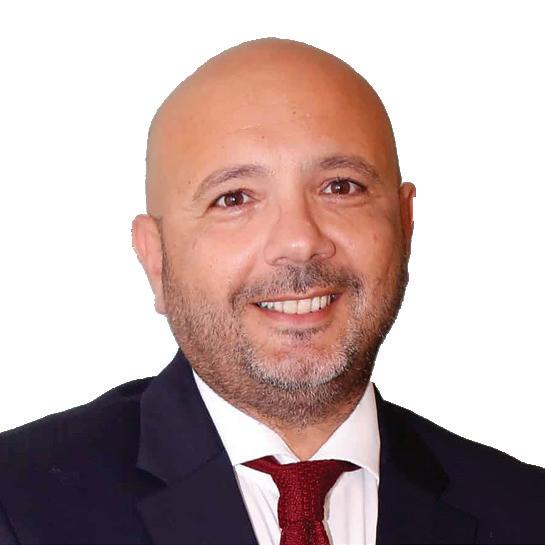
Charles Mizzi, CEO, Malta Gaming Authority
What unique challenges do you think the Maltes gaming industry has to deal with?
The Malta gaming industry, like any other, operates within a unique set of challenges, some of which are influenced by Malta’s specific context. Geography plays a role in both our strengths and limitations. Being a small island nation, we’re geographically well positioned in Europe, which makes us attractive as a hub for international gaming companies. However, our size also means we have limitations in terms of physical infrastructure and resources, which requires us to be particularly efficient and strategic in how we manage growth.
Demographics present another aspect to consider. While we have a highly educated and skilled workforce, the demand for talent in the gaming sector continues to grow. This drives the need for continuous investment in education and training, as well as attracting foreign talent.
The MGA is keenly aware of this and carries out numerous outreach activities with education institutions and students throughout the year, focusing on how the industry can present a viable and rewarding career path. We also emphasise responsible gambling practices and social responsibility to help attract individuals who are genuinely interested in making a positive impact within the industry.
Are there any unique solutions the gaming industry can offer in return facing these challenges?
The gaming industry is well positioned to offer solutions that can help address some of these challenges. One of the most notable contributions is its role in fostering innovation and technological advancement. The sector has been a driver of digital transformation in Malta, and this can have far-reaching benefits beyond the gaming industry itself. For example, the expertise in technology, data management and cybersecurity developed within the industry can be leveraged to improve other sectors, enhancing Malta’s

overall competitiveness in the global digital economy.
In terms of the demographic challenge, gaming companies can contribute to the local workforce by investing in skills development and education. We encourage as many operators as possible to enter into partnerships with educational institutions, and to provide training programmes and career development opportunities for young professionals. This not only helps to grow the local talent pool but also ensures that the gaming industry has access to the skills it needs to thrive.
The MGA has made several key changes and developments in regulations this past year. Why is it important to keep these facets of an Authority up to date, and are there any particular hurdles presented within the last year that led to any of these regulations being created? It’s crucial for the MGA to keep its regulatory framework up to date to ensure we remain effective, responsive and aligned with industry developments. Our regulations must be exible and forward-looking to enable the industry to thrive in a sustainable manner, while maintaining the integrity of the market. Player welfare remains one of our top priorities, which was why last year saw the introduction of five markers of harm into our Player Protection Directive. These markers are designed to help operators identify early signs of problematic gambling behaviour, enabling them to intervene in a timely and effective manner.
It’s also important to address the notion of risk-free gambling, which should never be incentivised or promoted. Gambling, by its very nature, involves risk, and framing it as ‘risk-free’ can mislead players and downplay the potential consequences. This concern has been exacerbated by recent rulings in some EU jurisdictions, some of which have mandated that MGA licensees pay back players’ losses on the basis that the contractual relationship between the player
and the licensee was deemed null and void. The aggressive advertising tactics employed by certain litigation financiers across the Union have further incentivised players to claim back losses incurred from operators duly licensed in Malta. This situation not only promotes the notion of ‘risk-free gambling’ but also poses a significant risk to individuals who may already be experiencing issues related to problem gambling.
We recognise that by purchasing players’ claims, litigation financiers may operate within the legal boundaries of their respective jurisdictions. However, applying this business model within the gaming industry presents significant dangers due to the inherent risks associated with gambling. These business models create a harmful incentive for players to continue gambling beyond their means, as they are misled into believing they have a safeguard in place to recover their losses. This fosters a damaging cycle of loss chasing.

What direction do you see the Authority going in, as we enter 2025?
Our approach will continue to emphasise robust, clear and enforceable regulations. By maintaining a strong focus on player protection, transparency and the integrity of the industry, we aim to provide a trusted environment where legitimate operators can thrive. A primary focus, as mentioned above, will be on enhancing the efficiency of our internal processes and improving our interactions with external stakeholders. We have already made significant strides by restructuring our regulatory departments, but this is an ongoing effort. By streamlining our operations, we aspire to be more agile and effective in fulfilling our regulatory duties.
Another key priority will be to maintain the open channels of communication that have become a hallmark of the MGA. Engaging with our stakeholders
and actively listening to their feedback is essential to ensure our policies and regulations align with the evolving needs of the market. This allows us to stay ahead of emerging trends, not play catch-up.
The MGA has always worked closely with the Financial Intelligence Analysis Unit (FIAU), and we’re starting to see other Authorities sign similar deals with their own government nancial divisions. How important is it to have the support of the FIAU, and perhaps even the Malta Financial Services Authority (MFSA), as a Gaming Authority?



Close collaboration with other authorities is vital to bolster our regulatory e ectiveness, as well as to reinforce our commitment to upholding high standards of governance and compliance. The MGA acts as the long hand of the FIAU in terms of the Prevention of Money Laundering Act (Cap. 373 of the Laws of Malta). Our dedicated Anti-Money Laundering (AML) Unit acts, on behalf of and together with the FIAU, as a supervisor for gaming companies to ensure they have the necessary controls and safeguards in place to detect and report any suspicious activity or transactions. Close collaboration with other authorities is vital to bolster our regulatory effectiveness, as well as to reinforce our commitment to upholding high standards of governance and compliance.We also collaborate frequently with the FIAU by organising outreach activities aimed at educating the sector and providing additional guidance to our licensees. These initiatives help reinforce the importance of compliance and ensure operators are wellequipped to meet their regulatory obligations. Collaboration with the MFSA is equally important. Both authorities play distinct yet complementary roles within the financial ecosystem in Malta. The MFSA focuses on the broader financial services sector, while the MGA has a specific mandate within the gaming landscape. By aligning our efforts and sharing best practices, we can create a more cohesive approach to regulation that enhances the resilience and integrity of our financial systems.



With a reputation as one of the world’s premium emerging market B2B iGaming solutions providers, WA.Technology is now the partner of choice for some of the world’s biggest frontier brands. Andrea Giuliani, Head of Commercial at WA.Technology, shares his expertise on what it takes to become a market leader
Markets such as Latin America have quickly become major powerhouses for sports betting and casino, while regions such as Africa continue to grow in popularity – with WA.Technology now considered one of the most sought-after platform providers outside of Europe and North America.
With the Brazilian sleeping giant set to awaken, WA.Technology is ready to be one of the market’s most in-demand platform and iGaming solutions partners.
WA.Technology’s full spectrum of iGaming solutions have been developed after extensive research and development, ensuring operators are well-equipped to navigate the Brazilian regulatory landscape and enhance their performance.
With so many operators expected to flood the market, operators will have their work cut out when it comes to standing out from the crowd. But how do they differentiate themselves? Product, personalisation and localisation. This is where WA.Technology truly shines.
Having established solid partnerships with leading local operators, WA.Technology is in an incredible position to help operators succeed with tailored solutions that cater to the unique dynamics of this rapidly expanding market.
WA.Technology is one of the few international providers with local offices to service operators. Having boots on the ground in Brazil helps WA.Technology to understand the Brazilian market and all its nuances, ultimately enabling the team to tailor WA.Technology’s products and solutions to meet the unique demands of the market, making the company one of the market’s most popular B2B brands.
WA.Technology offers partners a full spectrum of iGaming solutions via our

Andrea Giuliani, Head of Commercial, WA.Technology
WA.Platform, WA.Sports, WA.Casino, WA.Fantasy and WA.Lottery verticals.
Developed specifically for the iGaming market, WA.Affiliates will be particularly crucial for Brazil. With affiliate tracking software, performance updates and an integrated wallet, we firmly believe this will boost operators’ capabilities to interact with new players, enable sportsbooks and casinos to optimise their performance and drive long-term growth.
Africa has captured the attention of many industry experts and finds itself high on WA.Technology’s priority list for 2025 and beyond.
In the last few months, WA.Technology has signed multiple deals across a number of prominent African brands, spanning several different markets. We are continuing to invest in the region, supporting partners’ growth within this nascent market.
Like Brazil, localisation is imperative for any operator looking to enter Africa. To achieve this, operators must partner with a platform provider with in-depth knowledge
of the local market and the intricacies needed to succeed.
Ideally placed to continue its exponential growth on the continent, WA.Technology has unparalleled expertise in the African market via its local teams. Put simply, there is no other platform provider on the market that can deliver the experiences that WA.Technology can.
So what does it take to succeed? Operators must avoid an ‘off-the-shelf’ approach that you sometimes see from big-brand providers. Each of WA.Technology’s solutions are tailored to the unique requirements of the individual markets. The most essential factor here is offering localised payment solutions. In Africa, mobile gaming is the dominant platform for bettors, with mobile payments superseding traditional banking.
Payment methods, such as M-Pesa in Kenya, are changing how bettors engage with online gambling – operators must keep that in mind when entering new markets.
As a platform provider, WA.Technology sees potential in offering localised, mobilefriendly payment solutions incorporating local payment methods and innovations specific to that market.
Our platform includes features such as multiple in-house payment options, ready for any market across Africa, and lightweight mobile-first solutions that provide players with a seamless and highly engaging online experience without complex connectivity.
Trends show that localisation is here to stay. At WA.Technology, localisation can ‘make or break’ any market entry strategy and will be something that WA.Technology continues to focus on for years to come.
In short, if you want to be one of the best in LatAm, Africa, or any other emerging global region, WA.Technology will be the ideal B2B iGaming Solutions provider to power your operations.
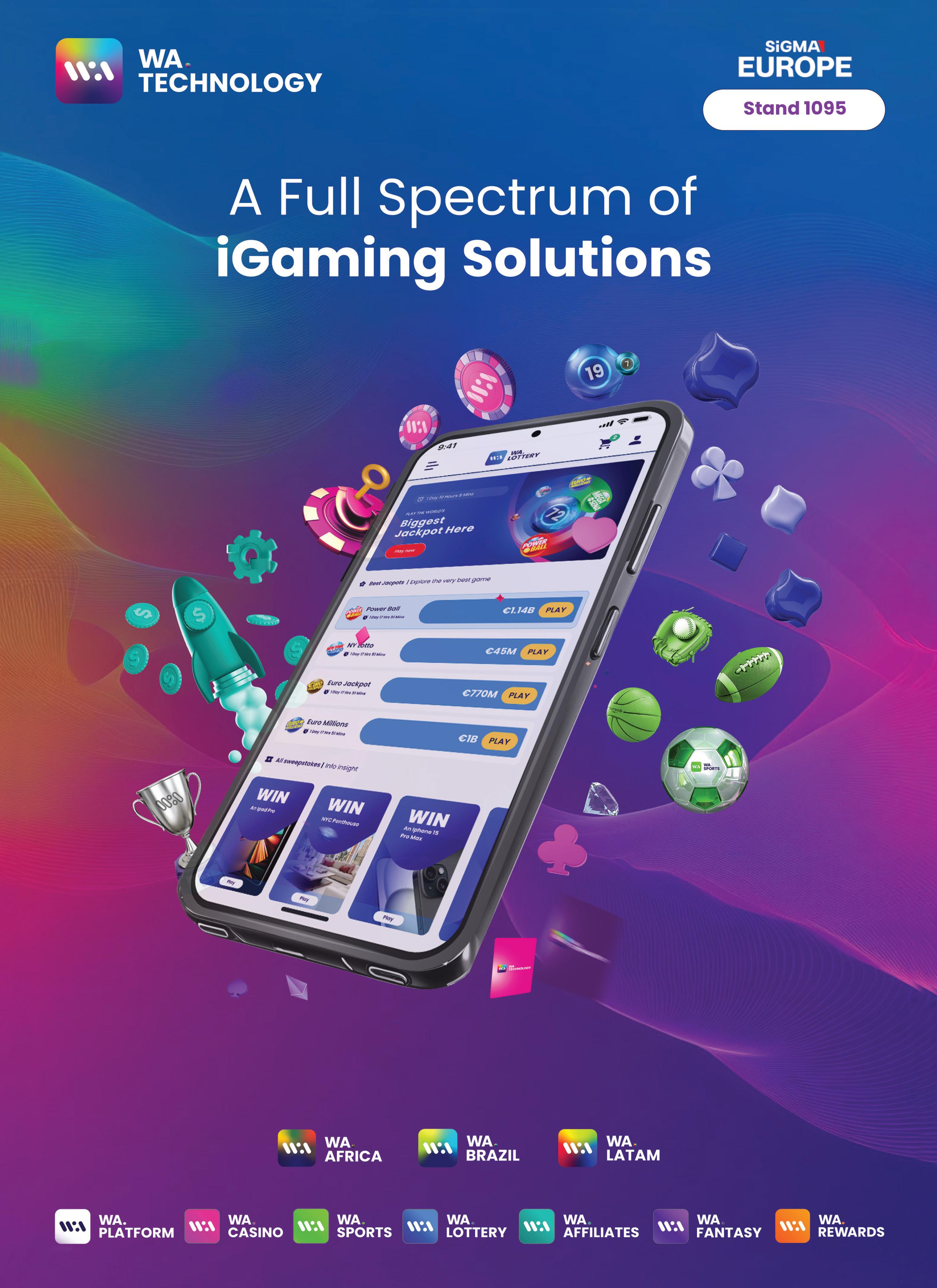

The global appetite for iGaming continues to surge, with markets from Asia to Latin America showing robust growth and evolving preferences. This expansion brings unprecedented opportunities for merchants, yet it also presents complex challenges.
While the focus typically remains on game development and user acquisition, the critical foundation, often operating behind the scenes, is what enables the seamless transactions that keep players engaged and businesses thriving.
The iGaming industry is truly as diverse as it is dynamic, and as merchants expand across vast geographies, the importance of a sophisticated, adaptable payment system becomes increasingly evident.
From the mobile wallet-dominated markets of Asia, where PromptPay headlines in Thailand, UPI dominates in India and MoMo in Vietnam; to the card-centric preferences in Europe that are leaning towards Open Banking methods and the proliferation of digital wallet solutions like Apple Pay and Google Pay; to the emerging instant payment trends in Latin America where PIX is leading the way in Brazil, payment preferences differ significantly across regions. This diversity presents a unique challenge for merchants looking to expand their global footprint.
This geographic variability in payments is just the tip of the iceberg and the challenges extend beyond mere payment method diversity. Merchants must also manage multiple currencies, securely store player payment details in compliance with PCI standards and maintain high approval rates across various payment channels.
And merchants are quick to realise that the initial simplicity offered by single Payment Gateway solutions often
proves inadequate when expanding into new geographies; with the process of integrating multiple Payment Service Providers (PSPs) to accommodate local payment methods frequently resulting in increased complexity, higher costs and delayed market entry.
This is why our Payment Orchestration Platform, which acts as a middle layer between merchants and their PSPs, is so widely popular in the industry. It offers a single integration point that connects merchants to over 600 pre-integrated PSPs and 1,000+ Alternative Payment Methods (APMs). This extensive network ensures that players can always pay using their preferred method, regardless of their location.
Our Cashier product exemplifies this adaptability, dynamically presenting relevant payment options based on the player’s location. This user-tailored approach enhances conversion rates by aligning with local preferences and expectations. Such a level of flexibility and market readiness is simply not achievable with a single Payment Gateway solution.

Natalie Agopian, Strategic BDM and Dubai Regional Manager, Praxis Tech
Transaction approval optimisation is another key focus area. Beyond just offering payment options, we have designed features to optimise approval rates. Our Decline Recovery suite, which includes features like Smart Routing and 3DS Cascading, Background Dynamic Currency Conversion (BDCC) and Retry Mechanisms, work in tandem to maximise approvals.
For instance, if a card payment fails, our system can automatically re-route the transaction through alternative PSPs in rapid succession, without requiring any repeated customer authentication.
Additional functionality also includes retrying the transaction through open banking routes if available, suggesting lesser deposit amounts if there were insufficient funds, and presenting APMs players can choose to pay with instead.
There’s also a need for speed when it comes to the time-sensitive nature of iGaming transactions, and our one-click pay solution and recurring payments feature support players to make fast deposits or account top-ups without spending too much time out of their gaming experience.
In addition, our Praxis Safe plugand-play product powered by Visa’s Cybersource solution provides merchants the protections they need, offering risk management and guarding them against chargeback and other types of common fraud that plague the industry.
The effectiveness of our solution is best illustrated through its impact. We’ve seen merchants increase their approval rates by up to 20% after connecting to regional PSPs through our platform and implementing our Decline Recovery suite.
Our clients have expanded into new markets with ease, and as the iGaming industry continues to evolve, so will we. We’re constantly innovating to stay ahead of market trends and emerging payment technologies and our growth in the industry is a testament to the trust that merchants place in our ability to meet their complex payment needs.
Learn more about Praxis Tech‘s Payment Orchestration Platform by visiting www.praxis.tech














As the iGaming industry continues to evolve, the role of seamless and e cient payment solutions has never been more crucial. Merchants constantly seek innovative ways to improve the player experience, drive conversions and expand into new markets. MiFinity, a global payment leader, is at the forefront of this transformation, offering cutting-edge solutions that enhance operational e ciency and user experience.
In this article, MiFinity CEO Paul Kavanagh discusses how MiFinity is achieving this, highlighting two of the company’s most innovative solutions to the perennial challenges facing iGaming operators: PayAnyBank, which revolutionises global bank transfers, and the latest version of the MiFinity iFrame, designed to enhance player engagement and improve conversion rates – all within a secure, intuitive interface.
Fast, reliable bank transfers are essential for merchants to maintain player trust and engagement. At MiFinity, we believe our PayAnyBank service is a game-changer. Supporting over 126 countries, PayAnyBank allows iGaming operators to o er seamless, rapid bank transfers to players in their local currency. This feature is particularly valuable for merchants looking to expand into new regions, where providing localised payment solutions is critical to success.
We’ve seen first-hand how traditional payment methods can be slow and cumbersome. PayAnyBank leverages a global bank network that facilitates fast
international settlements. In our experience, merchants can process bank transfers more efficiently, resulting in fewer delays and fewer customer inquiries about transaction times. Our multicurrency support is also designed to align with the global expansion strategies of many iGaming brands, enabling them to operate confidently in diverse markets.
Beyond bank transfers, our PayAnyBank B2B service also allows merchants to streamline payments to partners, such as affiliates, ensuring timely and efficient financial operations. This innovation is developed to reduce administrative costs, improve transaction speed and enhance the overall user experience.
At MiFinity, we’ve worked hard to develop a solution that benefits both merchants and players, and that’s precisely what the MiFinity iFrame 2.0 delivers. One of the standout features we’re particularly excited about is the embedded KYC veri cation. We know how important it is to keep players within the system, and with KYC integrated directly into the iFrame, merchants can see significant improvements in conversion rates. Players no longer have to leave the platform to verify their identity, making the process smoother and more intuitive.
The latest version of our iFrame also includes additional functionality, such as the ability to return customers to their payment methods for card payment declines. In our experience, enabling players to retry failed card transactions or switch to an alternative payment method has a direct impact on conversion rates, minimising the risk of losing customers due to payment failures.
Our iFrame is built for flexibility.


Our MiFinity eVouchers can retain partial balances in multicurrency and use multiple eVouchers to complete transactions, giving players more ways to fund their accounts. These enhancements will lead to higher conversion rates and extended engagement while also providing a secure, frictionless environment for merchants.
We understand the importance of continuous improvement and actively explore ways to enhance our products to maximise conversions. That’s why we’ve introduced advanced event reporting and analytics capabilities within MiFinity iFrame 2.0, allowing us to analyse drop-off points and innovate further to create even more friction-free customer journeys. From our perspective, this level of insight gives our merchants a huge advantage, a team working continuously behind the scenes developing tools and strategies for better engagement.
Solutions like PayAnyBank and MiFinity iFrame 2.0 and our other services, such as PayAnyCard, eWallet, Direct Bank Transfer, and Virtual IBAN, along with many others, provide a holistic solution that enhances efficiency, player satisfaction and conversion rates. We’re proud to offer a comprehensive suite of solutions that helps merchants reduce costs, streamline operations, and deliver an exceptional payment experience to their players. As the iGaming industry expands into new markets, we’re confident that MiFinity’s solutions are perfectly positioned to meet the needs of a global player base.
At MiFinity, we’re not just adapting to changes in the iGaming payment landscape – we’re driving them!




Staff Writer Beth Turner investigates the status of office and remote work within Maltese iGaming, and how the way we work is changing. Contributions from Hannah Ward
In 2020, the working world as we knew it ended. From the UK to the US to Malta, Covid-19-enforced bans forced us to stay at home, and so, work came home with us. During the height of the pandemic, working from home (WFH) became critical to the survival of many businesses. If a business couldn’t go remote, they were faced with severe financial blows and uncertainty; look at the casino industry in Macau, as just one example. However, by being online, the iGaming market all but thrived during the pandemic. And, as the iGaming hub of the industry, businesses in Malta had to be on top form – despite the conditions of the pandemic.
In Malta, while there was no nationwide lockdown, mandatory lockdowns were put in place for those 65+ or with chronic illness, as well as restrictions on social gatherings, closure of schools and non-

Jennifer Innes, CEO, BettingJobs
essential businesses, and other restrictions.
The final nationwide Covid-19 lockdown in England concluded on 28 March 2021 and, in May, Malta became the first EU nation to
“The overwhelming majority of the positions are hybrid. In 2022, 51% of roles were remote. That decreased in 2023 to 45%. This year-to-date, 36% of our placements were remote-based working” - Jennifer Innes
open up access to the Covid-19 vaccine for all citizens over 16.
According to research, workers reporting they worked exclusively at home rose from 5.7% in January 2020 to 43.1% in April 2020. Now in the UK, 44% of workers are remote. All that is to say, we are now three years out of the woods of the Covid-19 pandemic, yet despite that, WFH has remained. Why?
To understand how the job market has evolved since the Covid-19 pandemic, we should first cast our minds back to before the pandemic, to see what the market used to be, and whether this is a market makeup we might see a resurgence of.
Looking back, Cordelia Morgan-Cooper, Founder of formally Malta-based and now global recruitment firm CMC Consulting, tells Gambling Insider: “Before Covid, everybody was in the office. If I think back to Catena Media, we could work from home if the plumber or electrician was coming. But, otherwise, you would be in the office. We didn’t know anything different. When Covid came, I remember packing up my stuff thinking, ‘I’ll see everyone in about a week’s time.’ I was leading the Talent Acquisition team, so 90% of our work, if we’re not on the phone to candidates, is project based. So, the thought of being able to do an HR project on our own

from home was very alien to all of us. But we had to adapt.”
Jennifer Innes, CEO at BettingJobs, highlighted that while some sectors of the industry offered remote work pre-pandemic, for the most part work was done at the office. She says: “There were people that worked remotely. In two areas that has always been the case, mainly game studio candidates and tech candidates; those that can sometimes dictate because of their experience: games mathematicians, games producers, software development staff. Their skills are in such high demand that sometimes they could dictate to the company what their preferences were prior to Covid.
“Pre-Covid, most people were working in an office environment. That was because there was no option for these roles to be carried out remotely. Customer service roles are typically on-site, so are fraud & payments and responsible gaming roles. That’s why you’ve seen a lot of those roles being moved back into the office.”
Chanelle Demanuele, Recruitment Manager at Exacta Solutions, echoed similar sentiments to Innes and MorganCooper. She says: “Before the Covid-19 pandemic, remote or hybrid work in the gaming industry, particularly in Malta, was not as widespread as it became afterwards. Malta has a robust iGaming

sector, with many companies focusing on game development and related services. However, prior to 2020, the industry in Malta – like many others – largely favoured traditional office-based work. While some roles, especially in software development or tech, occasionally offered remote flexibility, the broader industry culture tended to emphasise on-site work for better collaboration, compliance and regulatory oversight, as Malta’s gaming industry is heavily regulated.
“The shift towards remote work gained momentum primarily during the pandemic, as businesses had to adapt quickly to lockdowns and restrictions. Post-pandemic, many companies, including those in Malta’s gaming industry, began adopting more flexible working arrangements, including hybrid models, as the benefits of remote work became clearer. However, before Covid-19, it was not particularly notable in the gaming sector in Malta.”
For Morgan-Cooper, having her first role in an office environment was critical for her career development; something she still believes holds value for entrylevel staff. “If I think back to when I first started in recruitment; if I had to try and do a sales call from home on my own, I honestly would have talked myself out of it because I would have had no clue where to start. For me, being plunged in at the deep end, having to do my first live sales call on a sales floor office where you could hear people’s conversations, that’s where I learned my pitch. I think it’s very hard in remote businesses to replicate that kind of training mindset.”
But can the market ever return to an on-site ‘only’ model, or has Covid

opened a remote Pandora’s Box that cannot go back to being shut?
With data supplied by BettingJobs, we can gain a wider perspective on the current make-up of Malta’s gaming industry hiring patterns.
Figure 1 shows a 41% decline yearon-year for remote placements in Malta. This is supported by figure 5, showing this same decline from 2022. Clearly, while WFH still exists on the island nation, it has lost popularity since the pandemic – understandable, as this work style has now become optional for employers, as opposed to mandatory for the business’ survival. Still, in spite of decline, WFH roles still hold a notable place on the market, especially where hybrid roles are concerned. According to Innes: “The overwhelming majority of the positions are hybrid. In 2022, 51% of roles were remote. That decreased in 2023 to 45%. This year-to-date, remotebased working has been 36% of the placements that we’ve made.” Demanuele supports these statistics, estimating a ratio of 75:10:15 (Hybrid vs fully remote vs full office) in gaming roles in Malta.
Of BettingJobs’ statistics, placements in compliance and marketing roles have been on the rise year-on-year, according to figures 2 and 3. Compliance roles in particular have seen a sharp increase in placements, growing 3x year-onyear. When breaking down the types of roles currently available in Malta, Innes explains: “In terms of what sorts of roles there are, the overwhelming majority of roles in Malta have always been marketing
and operational positions. What we see now is a lot more on the B2B side. So commercial, account management, sales. Those would be the top categories at the moment.
“In terms of where BettingJobs has always placed the most candidates in a single category, when it comes to Malta, it’s been marketing. But, this year-to-date, 25% of the placements we’ve made have been executive and senior level in Malta.”
Indeed, this statement is supported by figure 4, which shows a sizeable increase in C-level placements in Malta. There are several reasons for this, though one explanation may be the nation’s favouritism towards home-grown talent in a declining remote-work market – after all, as Innes says: “90% of the roles, or people that are taking these positions at the moment in Malta, are those that are already living and working there.”
As Innes explains, the majority of roles in Malta are being taken on by those already living on the island. This is despite a major selling point of remote work being the international talent pool it gives employers access to. Innes explains that visas are a major reason for this choice by businesses to work with staff on the island as opposed to abroad. “South African nationals, Australian nationals, even British nationals now have to have a Maltese employer to sponsor the working visa. So they can’t necessarily be in Malta, paying tax and setting themselves up as a contractor quite as easily as EU Nationals can,” she says. Brexit, which was finalised at

the end of January 2020, has made hiring British nationals even more complicated. “Post-Brexit, there have been implications for UK nationals. I would say a lot of our clients are of the opinion that they should be able to find someone within the EU, not even looking at British nationals,” she says. While relocation may be offered in some instances, Innes still holds true that the majority of the time, hiring globally is a minority decision in Malta. Moreover, having remote staff around the globe can be a complicated matter; even if a remote staff member does not need sponsorship from a Maltese business to work with them. Speaking specifically on UK nationals working remotely for a Maltese company, Innes states: “You don’t need [a sponsorship] if you are a British national working remotely from the UK. How that works is you set yourself up as a self-employed contractor and your self-employed contractor business. You share an invoice on a monthly basis to the company and that is an attractive model for some. But I would argue in Malta it’s not the norm, especially when you talk about more operational staff members. Fraud payments, customer support, who may be not used to sharing an invoice on a monthly basis. [Some] prefer a contract that comes with holiday pay stability, a notice period, lunches or even people may relocate there. They want a team.” Another point to consider is the fact that, for many, Covid meant returning to their home countries and staying there. As Morgan-Cooper tells Gambling Insider: “One of the things that came out of Covid was we all became fully remote

immediately. A lot of people left Malta, for example. They moved home. Maybe they decided they didn’t want to come back to Malta. So businesses had an added layer of ‘okay, we don’t really want to be fully remote anymore, but we want keep this person in their role. What do we do?’ They didn’t want to necessarily force people back to the office because, from a cultural perspective and a work environment, to be told you have to do something is not ideal. There was often a scaled back return to work, but for people who didn’t want to return to Malta, things changed quite a lot in a few years. It meant they would most likely have to look for a new role.”
Indeed, moving home meant moving jobs for a lot of gaming industry expats in Malta, re-opening these roles to those remaining on the archipelago. However, just because someone lives in Malta, it doesn’t mean their role cannot be remote.
REMOTE WORK: RISK VS REWARD
But what benefits does remote work offer? Looking beyond the challenges of hiring internationally, even when hiring from within Malta, fully off-site work comes with both pros and cons. Below are just a few points worth assessing.
REMOTE: AN EXERCISE IN TRUST
For staff, the benefits of working from home are clear. Consider a 9-5 workday. When factoring in getting ready for work and commuting to and from work, that 9-5 can quickly start looking like a 7-7, which when combined with the recommended eight hours of sleep each night leaves just four hours a day for personal hobbies, chores and activities. Working from home gives staff back multiple hours of their day lost to commutes, while also allowing a degree of household chores to be completed during the day, such as putting the washing on during a lunch break, returning even more personal time to staff. This is not to mention the financial upside of remote work for staff. In London, a journey on the tube is often

Cordelia Morgan-Cooper, Founder, CMC Consulting
over £5 ($6.53) minimum. Five days a week to and from work equates to over £50 spent on travel alone – and it is usually far more than this. People outside of London will have to pay even more commuting into the city. Therefore, a percentage of your wages are spent on travel to work, so it’s no shock that people want to avoid this extra cost, especially with inflation. This is the case in Malta and indeed anywhere in the world, whether travel is done via public transport or car; it’s not free, while staying at home is. For parents and carers, being able to work from home is even more advantageous. In some cases, it may be the difference between putting an aging parent in a care home or putting a child in expensive daycare, because the staff member in question will be able to tend to the needs of their dependents, while also carrying out the work needed to financially support them. In some cases, remote work is the only option. If a business is hiring internationally – rare but not unheard of in Malta – or hiring a distance from the office, that worker obviously cannot commute every day. Similarly, staff with disabilities may be unable to commute, which means if a business wants them, they will need to be accommodating.
Morgan-Cooper runs CMC Consulting
“For me, as a business owner, it seems crazy that you wouldn’t trust and empower your team. If you don’t trust the people that work for you, what are they doing working for you?” - Cordelia Morgan-Cooper
entirely off-site. Her reason for doing so is as follows: “Recruitment isn’t a 9-5 job. It is 24/7, if you would let it be. For me, I wanted equal opportunities when it comes to single mums, people that need flexible environments; some of the best salespeople are people who need more flexibility... I don’t ever want it to be that people feel pressured to go in, because sometimes a candidate might get in touch at 10 o’clock on a Friday night. If someone’s been at home all day, they’re far more likely to reply to that message. Those are the interactions I need.
“If someone is at their desk from eight til five, but they finish at one o’clock, they’re just clock watching. Recruitment is all based on results. I would much rather they do the washing, take the dog out for a walk, come back and then do three hours in the evening. That’s also why my business is results-driven; we don’t have fixed work hours. As long as the work is delivered, I don’t mind how it’s done.”
Innes echoed a similar sentiment, specifically pointing to the loyalty and increased retention rates that come with flexible work environments. There are “young mothers that have to drop kids off at school; they can pick up their child and can then log on and do a few hours later in the day. That encourages the longevity and stability of the candidates because they might not get that elsewhere.”
But, for businesses, such a proposition is a double-edged sword. In theory, allowing staff to stay at home, look after the kids and fold the laundry during lunch is a positive. But being at home can very easily be a distracting environment. This leads to less time actively working, which may impact productivity daily. MorganCooper adds: “There are, of course, many fully remote gaming businesses, but not so many in Malta anymore that are established large businesses. A lot of that has been down to the perceived, whether it’s correct or incorrect, lack of productivity when people are working at home. For leadership teams, it’s quite an easy rule to make that you don’t want people working from home because you want to physically see them.”
As such, a level of trust in staff to meet expected productivity levels is critical for remote work to be conducted effectively. “For me, as a business owner, it seems crazy that you wouldn’t trust and empower your team,” says Morgan-Cooper. “If you don’t trust the people that work for you, what are they doing working for you?”
Christine Parkhill, Chief Commerical Officer at Just Slots, spoke with Gambling Insider in an issue of GI Friday in August, outlining her reasons for businesses to
consider remote work and its range of benefits, especially for start-ups and smaller businesses. Reflecting on this, she says: “I think there is hesitancy from employers to fully acknowledge the benefits that working from home can have, with a key argument being made against the productivity of a worker when not in a traditional setting, like an office.
“Working from home requires mutual respect and a degree of trust from both the employer and the employee, and if this experience hasn’t been a smooth one, then I can understand the hesitancy to fully embrace this ethos. However, by instilling respect from the start as well as hiring people who will fit the company’s values, employees will cooperate with the standards being set and we have certainly seen increased productivity levels across the board with a flexible working pattern.”
Remote work is especially important to assess when considering the newest generations entering and leading the workforce. Both Millennials and Gen Z had significant portions of their work and school lives impacted by the pandemic, which seems to have typically made them more adaptable, and even keen, to integrate remote elements into their roles compared to execs who have spent decades in the industry with in-office work as the only option. These individuals are far more likely to see remote or hybrid work as a valid model for work; something seen in trends among Gen Z workers and Millennial-run start-ups.
“If you look at people who’ve been in the industry 10, 20 years, looking at their work life set up, it was totally different to what the world is now,” comments MorganCooper. “But we’re also living in a world where Gen Z is coming through. They expect different things. They’re demanding different things. Businesses have to be able to keep up with what the market demands. It’s okay to say we’re not remote, we’ll never be remote, but if all the developers you want are fully remote and you then can’t get a development team, what do you do?”
Indeed, a demand for remote and hybrid roles from Gen Z has come as something of a learning curve for recruiters. MorganCooper says: “I’ll go to the interview and they’ll say, “Okay, well, what’s in it for me?” and I’ll think wow, that you can feel that empowered, that you can walk into an interview and flip it on its head. Hats off to them.” Demanuele
raised a similar idea, stating that Gen Z “values more efficient and valuable work, and to be smarter workers. They are more efficient in their communication and want to work for companies that align with their values, especially in relation to corporate social responsibility and overall company culture.”
This attitude can also be seen reflected in young business owners, says Innes. “A lot of start-ups, esports start-ups, cryptocurrency start-ups from the younger generation, they’re all wholly remote. You wouldn’t really see many of these individuals in Malta, probably: It’s all across the globe.”
That’s not to say all young execs think this way, however. In Malta specifically, where so much gaming industry opportunity is available, according to Innes, there are management staff coming into the industry who “don’t have, compared to other industries... the same
on-site, though as Morgan-Cooper states: “Remote is definitely cheaper, it’s just whether in-office is worth the expense. That’s the way to think about it, because having an office is definitely more expensive. But if you’re two founders, for example, and you’re physically based in Malta and you’re building a team around you, then maybe it does make sense to have an office where you’re sharing ideas and collaborating often.”
Interesting, that in Morgan-Cooper’s experience however, start-up businesses seem to lean towards wanting office workers in Malta, as opposed to a remote team. She says: “Most of my clients that are in start-up phase are looking for people to be in the office. The reason for that, if they have a base in Malta, is that rent’s expensive, right? They want their employees to be physically in the offices. But also, for building the culture,


Of course, most brands were able to find a way around this, though a return to the office may have been a saving grace for some. However, start-ups do not have this pedigree or history in the office to contend with, which may make both options a far more equal playing field.
to the businesses they work for when they are remote compared to when they are working in-office. When reflecting on her time with Catena Media pre-Covid, Morgan-Cooper says: “If I look back at my career, some of my happiest years were working from an office in Malta. When I worked at Catena, the whole vibe of working in the head office of a huge, well-established business that everybody wanted to work at was amazing. You would have coffee with your friends, lunch with your colleagues and you could build those relationships much quicker than you can remotely.”
Few will disagree that the office is a primary location for people to establish friendships as adults, with teams often connecting outside of work in various ways. Indeed, creating a connected and interpersonal workplace environment is far easier done in person than online; something invaluable from both a staff and business perspective.
However, there is a far more nuanced approach that has to be considered postCovid; namely, that we have now adapted to establishing connections remotely, whereas during Covid, the experience for everyone was new. Demanuele put it as follows:
informal interactions like hallway conversations and casual check-ins foster a sense of connection. Remote work can make these interactions less frequent or more formal, potentially leading to emotional distance.
2. Communication challenges:
Remote work often relies on digital communication, which can lack the emotional nuance of in-person conversations. Misunderstandings, delayed responses or the absence of non-verbal cues can hinder relationship-building.
3. Isolation:
Remote employees can feel isolated, which might strain their connection with managers who don’t have the same level of direct visibility or access to their team’s day-to-day experiences.
HOW REMOTE WORK CAN MAINTAIN OR EVEN
1. Intentional communication: Managers who are proactive and intentional in scheduling regular check-ins and video meetings can maintain strong connections. The quality of communication can outweigh the lack of physical presence, especially if managers are empathetic and provide support.
3. Better work-life balance: When employees feel supported in managing their work and personal lives, their engagement can improve. Parkhill presented a similarly balanced take on the matter, noting that while distance can impact emotional connection, this can be mitigated with effective leadership and candidate screening. She says: “Remote work offers a huge range of benefits. However, it is important to be aware that a lack of physical interaction can completely remotely? Different people have different opinions on how to build that. During Covid, a lot of our clients were looking to hire, although there were no office managers or HR managers to cultivate or build team spirit when there was no office.”
2. Focus on results, not proximity: Some employees feel more connected and valued in remote settings because the focus shifts from “face-time” to the outcomes of their work. Managers who prioritise trust and performance-based evaluations can foster a stronger emotional connection with their staff.
Another notable point of debate among businesses is whether staff working remotely are as emotionally connected
POTENTIAL FOR EMOTIONAL DISCONNECTION:
1. Lack of face-to-face interaction: In traditional office settings, spontaneous,
potentially impact the emotional connection to a company and its mission. This can be mitigated with regular calls and scheduled water cooler chats, as well as fostering an open communication culture. Quality leadership is also vital, as senior staff can also help in maintaining and propagating a friendly and collaborative culture too.
Ultimately, though, you need people to be comfortable working in their own space. There is an incredible talent pool available across the globe, and to fully utilise this and create a strong workforce, an employer needs to ensure they are hiring individuals who can not only manage in a strict WFH setting, but also thrive in it.”
What is the right choice?
All these differing perspectives on so many facets of remote and on-site work will leave many businesses scratching their heads on where the correct answer lies. Quite simply, there is not a one-sizefits-all answer; every business both in and outside of Malta has its own needs, ideas and staff demographics, and with that comes a need to both understand where priority for the business lies and where compromise can be made to accommodate the wants and needs of staff.
There are a fair few voices, both in industry and academia, that will point to hybrid as a perfect compromise between the benefits of both systems. A study in California investigated whether hybridworking is more productive. In this study, 1,600 employees were randomly given a group for six months with one group in an office, one having a 2:3 split and the other fully remote. It was discovered that the hybrid workers generally had increased job satisfaction and reduced resignation rates, and were as productive as those who worked entirely in-person, as measured by performance reviews.”
Seeing hybrid as a middle ground is also an opinion held by Innes, reflected in the popularity of hybrid roles among her placements in Malta. “As far as Malta is concerned, yes, it is a middle ground because it allows individuals the opportunity to work from home, to balance work, life and family, and the career aspirations they would have in a more corporate working environment.”
“By doing the halfway split, you can also keep a closer eye on productivity,” comments Morgan-Cooper. However, she was also quick to point out that hybrid is not always the perfect solution. She says: “The challenge is that, with a couple of the fully remote businesses I support, the great thing is we can recruit anywhere. We
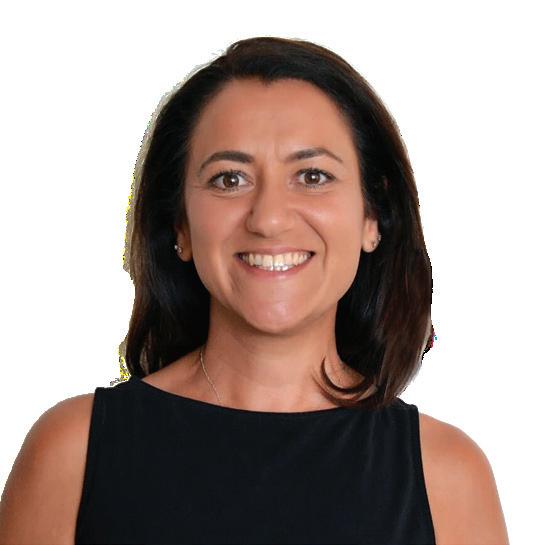
can find an amazing developer that could be literally on the other side of the world. From a cost perspective that’s often better, because in Malta, salaries for developers are extremely high. But it’s a tricky one and I think each business is sure they’re making the right decision.”
With businesses now open to the possibility of remote work – and the desire for its availability among certain talent pools and demographics – it is easy to forget that there was a reason office work worked in the first place. While the benefit of saving on commutes and flexibility are undeniable, as MorganCooper said earlier in this article, working in an office in Malta were “some of [her] happiest years.” Creating emotional connections in person are far easier and often far deeper than online interactions, made possible due to the benefits of body language, immediate reactions and joint experiences. For creating longlasting teams, a genuine connection is key; otherwise, beyond your salary, what is compelling you to stay?
Training, in a similar vein, also benefits from face-to-face guidance. In roles such as sales, seeing how other salespeople sell in real-time can be exceptionally valuable to pitch development, as opposed to Zoom-scheduled practice sessions. Creative role training can also benefit in a similar way, with staff able to learn the tricks of the trade and gain an understanding of how the production line works, with in-person feedback likely to be more effective than notes given over email. Those who move from remote role to remote role are simply unlikely to unlock their full potential in terms of training and ability, begging the question of whether they can truly be the best at their jobs.
Management roles, while often providing flexibility, also benefit from office environments, especially when the team is also in-office. Seeing managers face-to-face and being able to have inprivate conversations about important topics, rather than over a call or message, can be much needed for staff when challenging topics arise. Hirings and firings benefit similarly, with in-person interactions giving far better indication of a person’s demeanour, reactions and emotions to such news. Body language cues are also a must for those in HR, in this sense. “When you’re handling terminations remotely, it’s very different to when you’re physically sat,” MorganCooper says. “It’s easier for the person that you’re needing to unfortunately update with the not good news to be detached. They have the conversation, ‘Okay, thanks. Bye,’ put the laptop down and that’s the end of it. Sat in an office, you can feel someone’s nervous energy. You can feel how somebody is feeling much better. You’ve got those social cues around body language.”
Parkhill admits that “there are certain roles, like in sales or highly specialised technical fields, where in-person training might provide a more immediate experience.” However, this is not to say that remote training is always less effective than in-office training, with Parkhill pointing to “the ability to create a consistent and streamlined training process” and “the inclusion of diverse perspectives and resources that may not be available in a traditional setting” as two examples. Ultimately, whether people will admit it or not, productivity is also key. A good worker can be effective both remotely and in an office environment. But if a CEO was to sit down and ask themselves: will every member of my organisation give 100% if they are at home? How many would take shortcuts and work less hours, take longer with projects and make out that tasks took longer than they really did? The truth –whether we are prepared to admit it or not – is that there are workers out there that simply will not be productive unless pushed.
On a similar note, immediacy can be pinned as another driving factor behind in-office benefits. You can choose when to answer an email or Teams notification and can even choose not to answer an online call. This is not the case for inperson interactions; if someone walks up to your desk and begins a conversation, it is likely that questions will be answered far quicker. This is especially beneficial
in fast-paced environments or close to deadlines, when time needs to be maximised to get the job done.
What’s more, FOMO (fear of missing out) is a concept that’s often used in marketing and is a basic human emotion. But, when it comes to work and the office, people rather conveniently downplay this emotion. If you were close with a team and something exciting happened on a Monday in the office – whether social or completely work-related – you, as a human, would want to be there, rather than being sat at home. Interestingly, this concept also applies to hybrid roles and not just fully remote ones.
It seems, overall, that some roles operate better in an office environment than a remote one. Keeping up with trends is important, especially when it comes to keeping roles competitive (as Demanuele estimated, only 15% of roles in Malta are fully office-based). However, doing so may only cause detriment to a team’s overall performance. As MorganCooper explains: “In my professional capacity, I do consultancy work for businesses that are both in-office and remote... I think in some roles it is trickier to have a remote setup. Sometimes I feel a little bit conflicted because I know all of the benefits of remote working and I’ve

seen the benefits for myself. But I’ve also seen quite a few businesses struggle to drive performance in a way that suits their business.”
With off-site work now a mainstay within Malta, it is unlikely we will ever go back to a time when it was not. When asked what she thinks Malta’s job market will look like in five years, Morgan-Cooper says: “I think there’ll still be this struggle of remote/
“Malta has a robust iGaming sector, with many companies focusing on game development and related services. However, prior to 2020, the industry in Malta – like many others – largely favoured traditional office-based work” –Chanelle Demanuele

hybrid/ in office,” though echoing Innes’ earlier statement regarding experienced candidates dictating their experiences even before Covid, saying “I think highly in-demand candidates will still be able to choose the businesses they want to work with based on the benefits they have. I still think a lot of candidates view fully remote as a huge benefit.”
However, Innes’ focus for the future remained optimistic – that regardless of what the future holds, the presence of Malta in the global gaming industry will not be going anywhere anytime soon. “The online gaming industry is forever changing and that’s what keeps it interesting and appealing for the people that work in it,” she says. “What I would say is there have been factors like regulation, Covid, remote based working and Gen Z workers, start-ups, that have led to a somewhat diluting of the importance of Malta. No doubt that Malta will continue to be [important] and there will continue to be roles there, but I’ve seen new pockets of the iGaming industry appearing in Dubai, Cyprus, Bulgaria, Romania and America as well. What the world will look like in five years’ time? It’ll be super interesting to find out. But, I would say Malta will always continue to be the epicentre.”
In the fast-paced world of iGaming, success demands more than just capital. It requires deep industry knowledge, strategic foresight and a network that unlocks opportunities. Xanada Investments delivers all of this and more, standing out as a fund that goes beyond mere nancial support to provide hands-on expertise and a clear path to market leadership for startups.
At the helm of Xanada Investments is Vladimir Malakchi, CEO & Managing Partner. With over a decade of investment experience, coupled with a unique specialisation in iGaming, Malakchi is a driving force in Xanada Investment’s mission to rede ne how investments fuel success.
Xanada Investments isn’t just a financial partner – it’s a strategic powerhouse. Built on the belief that money alone isn’t enough to scale great ideas, Xanada Investments provides a holistic model of investment that combines capital, operational expertise and strategic guidance. The fund is designed to accelerate growth at every stage, whether a startup is taking its rst steps or scaling to dominate new markets.
What sets Xanada Investments apart is its tailored approach to every investment. Each startup in its portfolio receives customised support based on its specific growth phase, challenges and ambitions. This approach
“Together, we are building a future where excellence is not just a goal but a shared journey –together towards excellence”
allows the fund to not only finance promising ventures but to help them navigate the complexities of rapid expansion, from finetuning operations to unlocking new markets.
One of the core strengths of Xanada Investments is its ecosystem approach. Rather than investing in isolated companies, it builds the ecosystem of interconnected businesses that drive each other’s success. This approach creates a powerful synergy within the portfolio, where startups can collaborate, share resources and accelerate growth together.
Xanada Investment’s vision goes far beyond achieving a few successful exits. The fund is actively working to reshape the future of iGaming, fostering a landscape where startups aren’t competing in isolation but thriving in networks of partnership and shared expertise.
Xanada’s long-term strategy is to build a portfolio of 30-35 trailblazing companies, each representing a cornerstone of innovation and growth in the industry. This holistic approach ensures that every startup can leverage collective knowledge and resources, driving them towards unprecedented growth.






The Xanada ecosystem fosters cross-company collaboration – a gamechanger for startups seeking to scale rapidly. Portfolio companies benefit from shared best practices, industry connections and strategic partnerships, allowing them to scale faster and more e ciently. This creates an environment where innovation thrives and businesses can tap into each other’s strengths, amplifying their impact in the market.














Xanada Investments is committed to breaking down traditional barriers in the venture capital space. In line with this mission, the fund launched the Xanada Startup Contest, designed to identify and support the most promising startup in iGaming. With over 200 applications received and more coming in daily, the contest has become a launchpad for game-changing innovations.







What makes the contest unique is that it’s not just about capital. The winner receives mentorship, strategic guidance and access to Xanada’s vast network of industry leaders and partners. The contest is structured to equip the winner with the tools they need to transform their ideas into market leaders.







it’s through comprehensive support
Through this initiative, Xanada is raising the bar for what investment contests should deliver. It’s not simply about winning funding –about creating lasting success through comprehensive support and strategic guidance.







Keeping in line with our cover feature, we asked Betsson Group Chief HR Officer Lena Nordin for her thoughts on the pros and cons of both office and remote work in Malta
What would you say is the most popular working method in Malta (WFH/ hybrid/on-site) and why?
The hybrid working model is currently the most popular within our industry in Malta, though this may differ across other sectors, where many companies have returned fully to the office post-pandemic. In our industry, we recognised the benefits of remote work but also see the value in regular face-to-face collaboration. At our Malta office, we’ve adopted a hybrid model for most roles, where employees spend three days in the office. We believe this offers the best of both worlds: It maintains flexibility while fostering the creativity and problem-solving that in-person interaction often sparks.
Betting Jobs data has shown that remote placements are down in Malta by over 40% yearon-year. What would you say are the key factors that are causing businesses to withdraw these types of roles from the market?
One contributing factor could be the recognition that in-person collaboration provides unique advantages. We’ve observed how on-site work at the office supports quicker decision-making, fosters creativity and strengthens team dynamics. While remote work remains an option for certain roles, the shift towards office-based working highlights the value of face-to-face interaction. Additionally, businesses are reconsidering the longterm impacts of remote work on key areas like company culture, innovation

Lena Nordin, Chief HR Officer, Betsson
and employee development – all of which can be more challenging to nurture in a remote environment.
Data has also shown that C-level placements in Malta are up over 30% year-on-year. Do you think the decline in remote work opportunities plays a part in this and why?
It’s possible that the decline in remote work opportunities has influenced the rise in C-level placements. Executives often need to be more physically present due to the demands of strategic decisionmaking, leadership visibility and direct team engagement. Another factor could be the fact that Malta offers several advantages such as its climate, rich culture, history, safety and favourable tax environment, which make it an attractive destination for professionals.
“Employee satisfaction is not solely tied to the hybrid model. It’s a complex, multi-faceted issue... It’s important not to draw direct correlations where they don’t exist”
To what extent do you feel hybrid work is a compromise between employers and staff? What benefits does hybrid bring to businesses, aside from statistically more content staff?
Hybrid work offers a balanced approach, providing flexibility for employees while enabling businesses to benefit from the enhanced creativity, collaboration and problem-solving that in-person interaction fosters. At Betsson Group, we’ve found that this model has improved productivity by designating specific days for face-to-face teamwork. However, employee satisfaction is not solely tied to the hybrid model. It’s a complex, multi-faceted issue. At Betsson, we closely monitor satisfaction through various metrics, including our annual employee survey, which has shown that satisfaction levels have remained stable pre, during and post-Covid. This suggests that shifts between fully on-site, fully remote and hybrid working arrangements do not significantly impact overall satisfaction. It’s important not to draw direct correlations where they don’t exist, as employee satisfaction is influenced by numerous factors beyond work arrangements alone and focusing on one element risks oversimplifying the broader picture.
What do you feel are the most common ways that businesses are mishandling hybrid work?
A common pitfall is the lack of clear guidelines. It’s essential for businesses to set transparent expectations around hybrid work, such as when employees are expected to be in the office and which roles may require a full on-site presence. At Betsson Group, we ensure there is clarity around our hybrid model, and employees know which days are on-site. Another challenge is maintaining seamless communication between on-site and remote teams. Building a strong culture of inclusion, where all employees feel equally engaged
regardless of their location, is crucial to the success of a hybrid model.
Do you think the iGaming job market in Malta will ever return to how it was pre-Covid? I.e. an overwhelming majority of on-site roles? If not, how do you think the job market will evolve instead?
The iGaming industry is constantly evolving and, while the pandemic showed that remote and hybrid working models can be effective, certain roles will always benefit from the synergy and immediacy of in-person interaction. It’s unlikely that a single approach will suit all businesses. Companies will adopt what works best for them based on their unique needs. Some positions will naturally gravitate toward more office-based working due to the collaborative nature of the role, while others will retain the flexibility that remote or hybrid models offer, adapting to the needs of both the business and its workforce.





Cross-border payments are no longer optional – they’re a must-have for any merchant who wants to make a splash in the global iGaming scene.
At PayRetailers, we handle cross-border payments with ease, giving merchants the edge they need to stand out and give gamers an unparalleled experience.
PayRetailers is a payment processor operating in Latin America and Africa. We equip our merchants with the tools they need to embrace a borderless state of mind.
With our single, flexible API, we deliver a neatly wrapped, one-stop solution that allows merchants to accept both traditional and local payments and process crossborder transactions.
What was once a bold ambition in 2017 has since transformed into an extraordinary reality. Today we offer 300+ payment methods, with Kuady among them, in over 20 countries.
Our vision is embodied by our recent acquisition of Transfeera, a regulated payment institution in Brazil. With advanced technology that will grant PayRetailers access to PIX directly from BACEN, Transfeera is the ideal partner for our strategic growth in Brazil.
The transaction remains subject to approval from the Central Bank of Brazil. Until then, we are thrilled about this acquisition and how it will strengthen our combined position in the Brazilian payments space.
Our most recent ambition was realized when we launched in Africa this year; a launch that was swiftly followed by our expansion into 8 more countries.

Jonathan Vintner, Global Head of Sales, PayRetailers
We currently offer coverage in 12 African countries, including South Africa, Nigeria, Ghana, and Kenya. With this coverage comes access to mobile payment methods, such as M-Pesa and Airtel, plus a mix of card, cash, and bank transfer options. If operators want to grow in the region and aren’t sure where to start, we’ve got you covered. Integrating with PayRetailers unlocks instant access to the array of options that African gamers need to play and pay effortlessly.
This exciting development, which will enable our cross-border merchants to thrive in the African region, will be followed by future growth. Our eyes are set firmly on the horizon as we size up operations in Africa and even the prospect of a European launch.
When it comes to iGaming, we tick all the boxes:
· Instant payments and high conversion rates

· Fraud protection and risk management
· Tailored service and 24/7 support Today’s intrepid iGamers don’t want to idly wait around – they want to seize any opportunities that come their way. Unlocking instant payments is easy for merchants who integrate PayRetailers into their infrastructure, as our technology empowers customers to pay and play on their terms.
Protecting people from fraudulent activity is also top of mind – now more than ever. As a concerning rise in fraud schemes plagues the iGaming sector, we remain committed to offering our merchants robust fraud protection and KYC procedures that keep iGaming both fun and safe.
Our technology is complemented by a people-centric approach, as we also work tirelessly to put our customers first. Our scalable infrastructure powers long-term growth as businesses expand, and our team is on-hand 24/7 to provide support.
In short, we go all in for our customers.
Seven licences speak for themselves.
At PayRetailers, we mitigate the risk for our clients and prioritise regulatory compliance. We do so by working tirelessly to obtain the licences we need to operate as a payment institution and electronic money issuer in the countries we serve.
The latest licences added to our portfolio were for Brazil and Argentina, cementing our status as the go-to global payments company for merchants who process cross-border transactions.
The work that goes into obtaining these licenses brings us great pride, as it grants us the robust reputation and seal of professionalism that today’s go-getter merchants seek.
There’s no need to go in blind – we’ve got you covered every step of the way.
If you’re attending SiGMA Europe in Malta, don’t miss the chance to learn about our services in person. Our team can’t wait to touch down in this global iGaming hub to showcase PayRetailers’ scalable, highperforming solutions.
With PayRetailers, hitting the jackpot has never been easier.
























Gambling Insider speaks to the Financial Intelligence Analysis Unit Malta (FIAU) to discuss how operators can stay one step ahead of developing money-laundering threats in remote gaming
As the various threats to the gambling sector evolve, so must the teams that dedicate themselves to protecting the operators, customers and funds of everyone involved. It’s often a complicated, thankless job. If the Money Laundering Reporting O cers (MLROs) do that job right, the players will complain that Know Your Customer (KYC) protocols are too imposing. On the other hand, if something slips through the cracks, operators might inadvertently facilitate money laundering, could get ned and face reputational repercussions. With a company’s reputation riding on
operations staying above board at all times, it can become all too easy to start pointing the finger when something does go wrong. After reading the Remote Gaming Thematic Review published this year, we spoke exclusively with Catherine Zammit, Claudia Callus and Kimely Louise Borg Warne from the Financial Intelligence Analysis Unit Malta (FIAU) to discuss how they’re handling the situation.
The Thematic Review was an in-depth paper that dissected how thoroughly the MLROs and other relevant employees in the remote gambling industry were doing
their jobs. The report didn’t shy away from asking difficult and specific questions either, such as “Which obligations cannot be outsourced in line with the IPs Part I?” or “What are all the EDD measures required for high-risk customers when the €2,000 ($2,190) deposit threshold is met and the CRA and PEP screening have been carried out?” With so many details and situations in the balance, it’s understandable that human error will always pose a threat. This raises the question, though, of who is responsible if an AML/CFT violation occurs? Is it the MLRO who was managing

the case, or the operator who oversees all the operations? Well, according to “Regulation 15 of the Prevention of Money Laundering and Funding of Terrorism Regulations, a subject person is required to appoint one of its officers as the MLRO” and “the MLRO is responsible for reporting knowledge or suspicion of ML/FT to the FIAU.”
So a company is required to appoint an MLRO, and the MLRO is responsible for passing along any information to the FIAU. It’s not so much pointing the finger at one person for being ‘responsible’, but it’s a chain of collaboration and trust between parties. For this to work as efficiently as possible, each party needs to know who to turn to for guidance and assistance. Furthermore, the FIAU stresses that “penalties apply to the operator if there is no direct involvement by the MLRO in the breach identified. For example, by intentionally choosing not to report a suspicion in full knowledge of it.” This might seem like a flat point, but it begins to build the wider picture of responsibility.
The FIAU was established in 2002 and, while the first AML legislation can be dated back to February 1994, the definition of subject persons, which at EU level are referred to as obliged entities, was extended to cover remote gaming operators in the Prevention of Money Laundering and Funding of Terrorism Regulations (PMLFTR) in 2018. It’s no secret that the gambling industry has accelerated at a phenomenal pace in the last 20 years, which means lawmakers have been working tirelessly to keep up with the evolving demands. Against all the odds, though, it has worked, around 46% of suspicious transaction reports (STRs) (4,205 out of 9,157 in 2023) to the FIAU arose from remote gaming, which makes it one of the top reporting sectors. Not only that, but all of the MLROs

and other relevant employees who were interviewed for the Thematic Review were aware that internal reports should be made without delay, and 98% were able to provide examples of red flags that should lead to the filing of an internal report. The FIAU reflected on these statistics, noting “this shows that notwithstanding room for improvement in a number of areas, employees working in AML/CFT within remote gaming operators are aware of reporting obligations and what can lead to potentially submitting an STR to the FIAU, and thereby supporting the FIAU to reach its goal i.e. to combat ML/FT.”
So how has the team in Malta managed this feat? For one, the FIAU has been pushing for MLROs to come forward and discuss any potential issues before they develop into longstanding consequences.
“We encourage MLROs who are in doubt, need clarifications, and/or support to reach out to us”, the team emphasised. “We have a dedicated mailbox to which queries may be sent.” This isn’t the first organisation we’ve spoken to who are employing this tactic either, and it seems like more and more jurisdictions are seeing the positives in creating an environment where operators feel confident enough to come forward and ask questions without the fear of being punished. After all, it makes sense and has the potential to lessen the workload for everyone involved. Giving advice and support will always be easier than solving a problem after the fact, not to mention that it streamlines the process for MLROs and operators, too.
Of course, this hasn’t been an overnight achievement. The FIAU has been strengthening the chain of responsibility, as previously mentioned, by introducing collaborative efforts between the MGA

and FIAU. The Thematic Review that was published earlier this year was the start of a fresh initiative between the two regulators. “Having seen the results, we felt it would be an opportune springboard to reach out to the gaming sector through training”, the FIAU explained. “Towards the end of October – through the initiative ‘MGA Meets’ we will be offering some insights and open to Q&A; however, the agenda for this event is still being devised.” The team has also attended several training sessions and held events specifically for AML/CFT in the gaming sector.
Perhaps the FIAU has a point when it comes to this approach. With the legal frameworks having to evolve alongside the endless threats that are ever-developing, perhaps everyone will make more progress if they’re in an encouraging and supportive atmosphere. The team at the FIAU Malta encapsulates this perfectly: “Even though there may be consequences to a mistake, it shouldn’t be the end of the world. If it’s an honest mistake, we must acknowledge it, learn from it and move forward with an awareness of the past to do better in the future.
“It would be more apt if remote gaming operators establish AML/CFT frameworks and processes, then if found to be imperfect they can be improved through ongoing learning and open communication with the oversight of the FIAU and the MGA as the regulators. The desire to do better is critical. It is very positive that a number of subject persons do approach the FIAU to notify of self-imposed remediation programs to address gaps in their AML/CFT control framework; (before the FIAU announces an examination and therefore demonstrate that the subject persons are proactive and do not wait for the Regulator to find out). This is very welcomed by the FIAU.”



Fairytales have accompanied humanity on its long journey from the very earliest recorded communities, passed down through the ages by the eon-spanning links of oral tradition. For many centuries these tales have sought to inform and educate, frighten and fascinate, providing moral commentary and philosophical insight as man’s achievements transcended the millennia, from re to Facebook. Fairytales are a tradition in almost every part of the world. They entice and unite young and old, rich and poor, as they have done through all time. Their associated images have provoked joy and awe, laughter and horror, in every age from picked out in hieroglyphics to pixelated in Photoshop. No pastime runs through human history with the consistency of fairy tales – with the possible exception of playing games. Consider the tales gathered as One Thousand And One Nights. These stories are drawn from many eras, civilisations and empires, from ancient Mesopotamia to the Abbasid Caliphate, but are drawn together through the addition of the storyteller Scheherazade. In its own way,




Swintt seeks to emulate Scheherazade with I Hate Fairytales, spinning – literally – a thread through time from the earliest tales which, after all, were intertwined with another ancient string of humanity’s bow, the love of games and gaming.


I Hate Fairytales is not a history lesson, though it draws on, indeed lampoons, many figures recognisable to generations past. When, in 1902, President Theodore Roosevelt refused to shoot a bear, giving rise to the eponymous Teddy Bear, he would hardly have envisaged the representation of the bear in the slot game. Nor would the Brothers Grimm be expecting to see the interpretations of Snow White or Rapunsell (sic) when they created their own famous fairy tales in the early nineteenth century. What all these figures would have recognised, however, is the power of imagery to transform our daily lives, to deliver us from the mundane into a fantasy world of excitement and intrigue.
The strongest image of all is the unicorn, a mythical beast since antiquity, first depicted (though not with added flatulence) in the Indus Valley civilisations
around 2000BC, the unicorn has led a long and storied history prior to its appearance on the spinning wheels of I Hate Fairytales In another interesting subversion, the ancient Greeks, that most enlightened of empires, believed that unicorns were real. Who is to say what is real, and what is reel? This is the point of I Hate Fairytales


Swintt understands that stories and reality have a synergy, in which both can be turned to the betterment of the other. When a player loads up I Hate Fairytales, they are aware of the max win (33,934x) but this is not central to their experience – just as when reading a fairytale, they are aware that unicorns may not exist, but this is neither the reason for engaging nor crucial to responding to the action. The irony, of course, is deeply embedded within the name of the game itself – we do not Hate fairytales – because if we did, we would not appreciate the imagery or identify with these legendary figures of folklore. Instead, we engaged in an enterprise that has occupied storytellers for centuries. We are upturning convention for the sybaritic sensation of spinning those reels – fairydust included.
















International holding, iGaming technologies and B2B solutions specialist – PIN-UP Global – explores the top 5 commandments on how to build an effective international team
One of the key challenges for the company is finding and retaining talent in a rapidly growing market. In the past year alone, the number of our specialists has grown by more than 1,800 people, now reaching 3,600 employees.
This means daily challenges for us: how to find the right people, retain them, ensure development and professional growth within the system. In addition, the complexity of recruitment in our field is due to the specifics of the business, we are developing very quickly and our specialists must be flexible and ready to adapt to our dynamics. We want people who can quickly learn new skills and apply them in practice, react quickly to changes and offer innovative solutions. And in this market, such personnel are always worth their weight in gold. Is it difficult to gather and retain a team of professionals at such a pace? Absolutely. Is it possible? Naturally. Let me tell you a little bit about how we do it at PIN-UP.
One of the main fundamental advantages of working in PIN-UP is the confidence of employees in tomorrow. They know that external factors are unlikely to affect their financial stability or role. We continue to grow at a rapid pace, with dozens of new positions opening every month. This stability creates an environment where team members can plan their lives without worrying about downsizing.
“At PIN-UP, we believe that people need a balance between work and leisure”

At PIN-UP, career progression is a reality for many. An impressive 60% of our top managers started from lower positions and advanced internally holding. This upward mobility is not limited to specific departments – employees across various functions, including customer service and marketing, have moved into management roles. It is not uncommon for our contact center managers, having studied the product and the customer, to move to other areas of the structure, for example, to the SMM-department, where they continue to grow, and some of them can take a managerial role. The opportunity for growth is one of the key factors that make us an attractive employer.
Career growth at PIN-UP is supported by our commitment to learning and development. Our Learning & Development department is dedicated to creating tailored courses for employees, including specialised training in both hard and soft skills. Additionally, we’ve developed our own Learning Management System and certification
processes. For roles requiring English proficiency, we offer customised language courses. We also promote a culture of knowledge sharing by creating professional communities where employees can exchange expertise.
The opportunity to constantly grow and learn is a question that often comes up in job interviews. People want to know that they will be able to develop their skills and gain new knowledge, thus becoming more valuable in the labor market.
4. WORK IS NOT THE ONLY JOB
At PIN-UP, we believe that people need a balance between work and leisure. That’s why we’ve introduced a platform where employees can stay updated on company news, exchange gifts, and participate in interactive quests to earn Pincoins. These can be redeemed for branded clothing or tech gadgets. This platform also hosts various interest groups, promoting informal communication among colleagues, which is as important to us as professional growth.
5. COMFORTABLE
PIN-UP Global is a multicultural holding with offices at Cyprus, Ukraine, Poland, Kazakhstan, Armenia, Peru and India. Working in an international environment requires employees to be adaptable and communicative, bridging cultural differences with ease. We also provide relocation opportunities and support for those who need it. Our Relocation Managers assist employees during the transition to new countries, ensuring a smooth adaptation process.
I’ve described just a small part of our daily work to build an efficient, productive team that constantly moves forward and achieves results. If you’re interested in joining PIN-UP Global, visit our website or come meet us at SIGMA in Malta from November 12-14 at booth 1073.

The autonomous city of Ceuta has become the centre of much discussion thanks to its favourable tax regime in recent times. Gambling Insider sits down with Spanish Gaming Law specialist – Alla Serebrianskaia – to find out more about the emerging market
It is widely accepted that Ceuta yields an advantageous corporate tax regime. Could you explain how the tax works, why it has become such an appealing place for gaming firms to do business, and what the current state of play is within its market?
The main advantage offered by the autonomous city of Ceuta (and the city of Melilla, as they have exactly the same regime) is the special tax rate applicable to gambling operators licensed in Spain. Specifically, while the gambling tax in the Spanish market is 20% on GGR (regardless of the country/city in the EEA in which the operator is located), those gambling operators located in the autonomous cities of Ceuta or Melilla have a reduction of 50% on the gambling tax and therefore the applicable rate for them is 10% on GGR. Ceuta and Melilla also offer a 50%
reduction in corporate tax (12.5% compared to the 25% tax rate applicable in the rest of the Spanish territory), VAT exemptions and reduced social security contributions for personal income tax. These incentives are very attractive as they allow operators to maximise profits and benefit from cost savings. Accordingly, these two autonomous cities have become really attractive location for gambling companies and, as a result, dozens of companies licensed in Spain have relocated to Ceuta or Melilla in recent years to benefit from these tax advantages.
Perhaps the most widely recognised jurisdiction in Europe for gaming is, of course, Malta. How do you compare the autonomous city of Ceuta to Malta? What are the key similarities and differences? While Malta has one of the more established and largest iGaming sectors
in the world, Ceuta and Melilla do not exactly have a long history as gamblingfriendly territories. The special regime in these two autonomous cities was created in 2018, taking advantage of Brexit by trying to attract the investment that was leaving Gibraltar. The Spanish Minister of Finance and Public Administration then approved, through the General State Budget, the additional tax reduction of 50% for operators licensed in Spain but compressed to just in the autonomous cities of Ceuta and Melilla. While both Malta and Ceuta/Melilla are pro-gambling jurisdictions and offer tax incentives and benefits to gambling operators, there are some key differences. The territory of Ceuta offers benefits to operators licensed in Spain at federal level by the Directorate General of Gaming Regulation (DGOJ). Operators based in Ceuta must comply with Spanish regulations, including
advertising restrictions and technical requirements. As Spanish regulations apply, licenses are not automatically recognised in other countries. This means Ceuta’s jurisdiction is primarily aimed at operators focused on the Spanish market and dependent on licenses issued by the DGOJ, and Ceuta itself does not issue licences and is not an independent gaming licensing jurisdiction.Malta, on the other hand, has the Malta Gaming Authority (MGA), one of the most internationally recognized gaming authorities. It offers specific licences for different types of operations, such as B2B and B2C. The MGA has a more flexible regulatory regime with international recognition, making it easier to operate in multiple global markets. MGA licences have broader international recognition, allowing operators to access different European and non-European markets. The choice between Ceuta and Malta therefore depends primarily on the commercial objectives and strategy of each operator. Ceuta is a more attractive option for those wishing to focus on the Spanish market and take advantage of favourable taxation. Malta, on the other hand, with an attractive and favourable taxation, offers a wider international reach and a well-established regulatory framework, making it ideal for operators seeking geographical diversification and operational flexibility. It is worth noting that Ceuta and Malta should not be viewed as competing regimes. The two jurisdictions may in fact be complementary. A number of our clients are based in Malta and have established a presence in Ceuta or Melilla for the purposes of operating in Spain under the Spanish licence issued by the DGOJ; and our firm is often retained to advise on this structure.
Building on that, how does Ceuta compare to jurisdictions such as the Isle of Man, Alderney and Curaçao?
These four territories are known as gambling-friendly places; however, the choice between them – again – truly depends on the operator’s objectives, target markets, tax strategy, compliance priorities, products to be offered, etc, since all four territories present differences as to the treatment of these objectives. As previously explained, Ceuta is ideal for operators focusing on the Spanish market or those seeking to benefit from advantageous tax
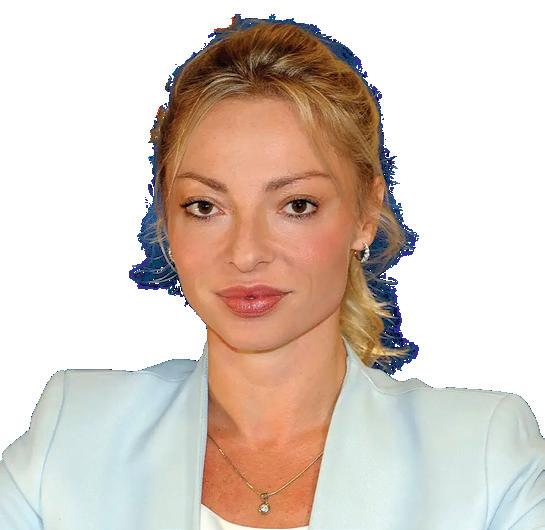
incentives within the EU framework. The Isle of Man is a strong option for operators looking for a highly regulated environment with a good international reputation and access to global markets. Alderney provides a balance between high regulatory standards and operational flexibility, making it suitable for companies seeking robust compliance with lower costs than other EU jurisdictions. Curaçao offers the lowest costs and simplest licensing procedures, making it suitable for smaller operators or those looking to minimise initial setup costs. However, it also lacks the international recognition and compliance standards of the other jurisdictions.
Lots of major betting companies –including Bally’s, Flutter, William Hill and more – have now set up offices in Ceuta. What do you think the future holds for gambling in the city?
Ceuta is definitely becoming an increasingly attractive hub for gambling operators and for IT business in general, as the city is also fostering a growing ecosystem towards B2B services and technology. The population, employment numbers, job creation and investment are all on the rise; and Ceuta is already undoubtedly recognised as a businessfriendly territory with a growing expatriate community.
How does the market in Ceuta relate to the rest of the Spanish gambling market as a whole?
Being regulated at Spanish federal level by the DGOJ, land-based gambling is regulated by each region and, therefore, there are 19 different regulators. Essentially, the online gambling market in Ceuta is dependent on the DGOJ, the federal
regulator and the federal licences issued by this authority. The only specific independent licensing regime offered by the Ceuta authorities is for land-based gambling and for regional online gambling activities to be offered by an operator, exclusively within the territory of Ceuta for the residents in Ceuta (although this is not a common activity).
As a Spanish-speaking jurisdiction with a highly attractive corporate tax structure, do you believe Ceuta could have a key role to play in acting as a gateway between the EU market and the fast-developing LatAm market?
Absolutely. The Spanish-speaking environment, favourable tax structure, and EU regulatory compliance are all massive contributors in this area. Its shared language and cultural ties with LatAm facilitate smoother communication and business operations, while its alignment with EU standards offers trust and experience.
Ceuta’s position within Spain and its advantageous tax incentives provides a cost-effective base for operators to target both the EU and LatAm markets. Its growing ecosystem of gambling companies and service providers can foster partnerships and market entry strategies. While challenges like regulatory fragmentation in LatAm and varying player preferences exist, Ceuta’s strong foundation makes it an ideal launchpad for operators looking to expand into LatAm while maintaining a foothold in Europe.
As a burgeoning online gaming hub in the European market, what do you believe are the key pitfalls the jurisdiction will now need to avoid to maintain its impressive growth rate?
Put simply, to sustain its growth, Ceuta must focus on building a comprehensive business environment. Enhancing local infrastructure, maintaining regulatory stability, investing in talent development and ensuring strong compliance standards are all – among other things – key. Diversifying into related sectors and promoting itself effectively are also essential to remain competitive. Ceuta must proactively address potential issues such as regulatory uncertainty, limited local support services and negative perceptions of the gambling industry; to continue its impressive growth trajectory and solidify its position in the gambling and IT digital market.
In online gaming, convenience, speed and security are fundamental needs. Since Trustly’s founding in 2008, we have been developing payment solutions that enhance not only operator efficiency but satisfy your players. We are the biggest open banking payment provider in gaming. And our 16 years of experience means we can connect merchants to 650+ million consumers across 33 markets – all while setting the standard for payment solutions in the gaming industry. We are leading from the front to create a world-class platform, innovating beyond the sector we inspired.
For gaming operators, it is essential that players can effortlessly deposit funds and quickly access their winnings. We launched our first instant payout service more than a decade ago to allow users to receive funds directly into their bank accounts, setting a new industry benchmark for speed – critical in a sector where quick withdrawals are essential for player retention.
“Offering instant payouts is moving from a competitive edge to becoming an expectation of players in more and more markets,” says Olof Wirfelt, Chief Commercial Officer for Trustly. “Operators that provide it not only better retain existing players but attract new ones looking for quick and frictionless experiences.”
While other payment companies focus on isolated aspects of the process, our fullservice approach manages the entire payment journey at an unmatched scale – from deposits to reconciliation. This comprehensive method reduces complexity and administrative overhead for operators, allowing them to concentrate on transforming the performance of payments, and delivering a great gaming experience.
In 2016, we introduced our next-generation Pay N Play product, designed to streamline the player onboarding process. By merging deposit and verification into a single flow, we eliminate long registration forms and cumbersome verification steps that often frustrate players – significantly enhancing

their experience and improving conversion rates for operators.
Our focus on real-time data and instant verification enhances the payment experience, keeping it simple, secure and intuitive. And it has quickly become the industry standard in markets like Sweden, Finland and Estonia – helping to reduce churn and operational costs for operators.
“As operators face growing competition, Pay N Play offers them an edge by removing friction at the point of entry,” Wirfelt says. “Players enjoy the simplicity and operators benefit from increased conversion.”
Trustly expanded its next-gen Pay N Play product to the Netherlands in 2022, combining end-user data from three different sources with deposits to slash the time it takes to onboard users from hours or days –to just three minutes. The innovation is just the next step on our mission to transform the payment experience for players and operators – and will be expanded to the UK, Denmark, Germany, France and Italy.
What sets Trustly apart is our commitment to owning and maintaining our infrastructure end-to-end. This results in full control over the payment process –and a more reliable, scalable and secure solution for operators. Other providers often depend on the integration and tech of third-party services, which limits their
ability to innovate and control the payment experience.
“We’ve built strong relationships with banks over 16 years, and developed our platform to ensure it’s robust and reliable,” Wirfelt says. “This hands-on approach gives us the flexibility to deliver a truly exceptional payment experience.”
Our deep-rooted bank connectivity with 12,000 institutions – combined with our commitment to Open Banking – positions us at the forefront of payment innovation. As leaders in shaping the EU’s PSD2 regulatory framework, our control over our infrastructure guarantees faster processing and minimal errors, providing operators with a seamless payment solution that’s hard to replicate. We proudly partner with over 300 of the top gaming brands, offering solutions that span all gaming verticals, including sports betting and casinos.
Our commitment to innovation, reliability and operator-focused solutions has solidified our position as a payments leader in the gaming industry. From pioneering instant payouts to transforming onboarding with our next-generation Pay N Play product, we continually address the essential needs of operators and players alike.
With our proprietary infrastructure, strong banking relationships and expertise in navigating regulatory landscapes, we provide the competitive edge that operators need to enhance player experiences and drive growth.
As we expand into markets like the UK, Denmark, Germany and Italy, operators can leverage our expertise to offer faster, seamless onboarding and payment experiences. And with our profound understanding of local regulations and banking, operators can confidently expand into new regions while driving growth and player loyalty.
As the gaming industry continues to evolve, Trustly remains a trusted partner, delivering fast, frictionless and secure payment solutions that operators rely on –and players love to use.







































Betby CEO Leonid Pertsovskiy speaks to Gambling Insider about how the sports betting supplier can stay competitive in such a big market and how much the industry is changing
Leonid, how do you reflect on Betby’s journey so far?
As I look at where we are today, it’s still surreal to think about how far we’ve come since Betby rst came to life in late 2018. While we’re still a relatively young company, our journey over the past few years has been nothing short of remarkable. The technological and operational successes we’re experiencing now are a direct testament to the hard work, dedication and vision that has driven us forward since day one.
Reflecting on Betby’s performance fills me with both pride and humility. It’s been a journey marked by strategic milestones, operational achievements and consistent financial growth that has outpaced even our most ambitious targets. We’ve navigated challenges, seized opportunities and continuously pushed the boundaries of innovation. And knowing what we have in the pipeline – whether it’s in terms of product development, operational efficiencies or commercial expansion –I’m more optimistic than ever that this upward momentum will continue for the long haul. I’m confident that we’ll keep exceeding the high expectations we set
for ourselves as a business committed to pushing the limits of what’s possible.
When I co-founded Betby in 2018, our ambition was simple yet bold: to revolutionise the sports betting landscape through product excellence and technological innovation. Today, as I reflect on what we’ve built, I’m proud to say Betby is stronger than ever. Our product portfolio is more robust, our technology more advanced and our






Leonid Pertsovskiy, CEO, Betby
partnerships more impactful. We’ve remained true to our core vision – to deliver unparalleled sports betting experiences – and it’s this unwavering focus that has fueled our success.
What does a sportsbook supplier need to do to challenge industry heavyweights in today’s market?
In today’s competitive sports betting landscape, every sportsbook supplier must go beyond offering a standard product. Success hinges on the ability to provide di erentiation capabilities, and tailored solutions that equip operators with the exibility and agility to thrive in any market environment. At Betby, we’ve long understood that product is king in the battle for sports betting supremacy. Our premium sportsbook offering has been designed to stand out, competing only with the very best in the industry. This commitment to product excellence is one of the key reasons why we’ve attracted some of the most prestigious operators to partner with us. By consistently delivering a top-tier product, we’ve become a trusted name for those seeking to outperform the competition.







However, the demands on sportsbook suppliers are evolving. Operators today aren’t just looking for a product – they need the tools to innovate and differentiate themselves in increasingly crowded markets. This means sportsbook suppliers must offer solutions that not only scale with the operator’s growth, but also provide the security and reliability necessary for long-term success.

to further enhance personalisation and boost customer loyalty.
By understanding the preferences and habits of bettors, operators can deliver tailored experiences that keep users engaged, while simultaneously optimising their marketing and retention strategies. The industry is also undergoing a significant transformation in its use of artificial intelligence (AI). Once considered a luxury, AI technologies are now integral to areas such as risk management, player acquisition and retention.
personalisation models allow sportsbooks to deliver targeted messaging, creating a more seamless and enhanced betting experience for users.


To meet these evolving needs, modern sportsbook solutions must be flexible enough to cater to a diverse range of operator requirements. This flexibility must be offered on a sliding scale of optionality, enabling each operator to choose the right level of service that fits their specific business model and strategic goals.

The demand for modular solutions underscores a significant shift in the industry. More operators are seeking to innovate through specific, highly customisable tools rather than relying on a single, monolithic platform. And we must take heed to this requirement as well. For instance, our proprietary esports content – delivered through the Betby Games esports feed –enriches operators’ portfolios, capturing a growing segment of the market. And this is a path we are considering as well for our AI-based sportsbook tools, which empower operators to leverage advanced analytics and machine learning to refine their betting offerings. Thus, enabling operators to build out their sportsbook in a way that aligns with their brand, audience and operational strategy.


our proprietary esports










There are many different ways you could answer this, so I’ll keep this question very openended: Is sports betting changing? Today’s sports bettor demands a personalised, dynamic betting experience, as seen in the surge of popularity around bet builders, where users can curate their own bets across multiple games, leagues and sports. This shift re ects the growing desire for greater control and customisation in betting experiences. On the business side, sports betting operators are seizing this trend to drive revenue growth by transitioning customers from traditional, offline methods to streamlined digital platforms. This shift not only offers a more engaging and intuitive product but also provides operators with the opportunity to grow their revenues without increasing customer spend. Digital platforms also enable operators to gather invaluable user behaviour data, which can be leveraged







no longer an exception –











Advanced AI models, including Machine Learning and Deep Learning, are being used to analyse vast volumes of data, turning it into actionable business intelligence. These technologies help operators make smarter decisions in real-time, from setting odds to identifying patterns in player behavior. As the industry becomes more data-driven, AI-powered sportsbooks are they are becoming the norm for companies that want to stay competitive and deliver cutting-edge experiences. At Betby, we are proud to be at the forefront of this sportsbook revolution. By combining














*25% OF THE PRIZE POOL AND THE TOURNAMENT FEE WILL BE DONATED TO THE BENEFICIARY. AT PORTOMASO CASINO 7 DEC 19:00HRS






























AI-driven solutions with a focus on personalisation, we’re setting new standards in the industry and driving the future of sports betting.
Away from the technical side, what Betby-related updates can you tell us about?
At the end of the day, everything we do is about technology and the product we develop for our partners. Our success hinges on building innovative solutions that push the envelope in the tech space, and it’s easy to get wrapped up in celebrating product milestones. However, there’s a vital piece of the puzzle that’s often overlooked when organisations focus solely on product success – the people behind the scenes who bring that success to life.
Since our early days, even as a start-up, we’ve been intentional about being a peopleoriented company. It’s been my prerogative from the very beginning to ensure that Betby provides not just a competitive working environment, but an outstanding one that fuels innovation, creativity and wellbeing. Why? Because products don’t create themselves –people do. And if you’re not fostering a strong, engaged and motivated team, no amount of cutting-edge technology or market opportunity will lead to sustained success.
While perks are essential in creating a baseline of employee satisfaction, they’re just the beginning. Our aim is to go beyond perks and focus on creating a purpose-driven culture where people feel valued, inspired and empowered to do their best work. I believe a strong company culture isn’t about providing flashy benefits; it’s about building an environment that fosters collaboration, innovation and personal growth. As we continue to grow, my vision is to ensure Betby becomes not just a good place to work but one of the best workplaces in our industry. This means taking tangible
steps toward enhancing every aspect of our employees’ experience – from how we communicate and collaborate, to how we recognise achievements and promote personal and professional development.
You have announced a big brand ambassador deal with Magnus Carlsen; tell us about that partnership, why you went through with this one in particular and what Magnus will do for you guys?
We’re thrilled to have announced our partnership with Magnus Carlsen, one of the most iconic figures in the world of chess and a true embodiment of strategic brilliance. Partnering with Magnus is not just about aligning with a renowned sports personality, but about connecting with someone who shares Betby’s core values of intelligence, strategy, and innovation.
When we began exploring brand ambassador partnerships, we weren’t just looking for a big name – we wanted someone whose personal brand aligns with our vision and ethos. Magnus, a chess Grandmaster, five-time world champion, Highest FIDE-rated chess player and G.O.A.T awarded, exemplifies strategic thinking at the highest level. Chess, similar to the B2B sports betting industry, has a high element of foresight and decision-making. Magnus’ reputation for calm, analytical thinking under pressure mirrors the qualities we value at Betby, both in our products and in our company culture.
Chess, like our industry, requires a deep understanding of patterns, probabilities and long-term strategy. Magnus’ approach to the game – meticulous, calculated and forward-thinking – reflects the same qualities we bring to the development of our technology and our relationships with partners. He is more than just a sportsman; he is a thinker and that intellectual focus
perfectly matches our philosophy of continuous innovation and excellence. This partnership with Magnus goes far beyond a traditional endorsement. We view him as an ambassador who will play an active role in representing our brand to the world.
Is the chess element of the partnership something you’ll look to incorporate in your marketing, positioning Betby as the ‘smarter’ type sportsbook?
Absolutely, the chess element of our partnership with Magnus Carlsen will play a pivotal role in our marketing and brand positioning. Chess is universally recognised as a game of intelligence, foresight and strategy – qualities that are at the core of what we aim to deliver through Betby’s sportsbook platform. Aligning ourselves with chess, and specifically with a Grandmaster like Magnus, enables us to reinforce our identity as a smarter sportsbook – one that is driven by data, strategic thinking and innovative solutions.
Finally, what other goals and future plans can you tell us about?
In 2024, Betby made significant strides in its strategic growth, setting the stage for future success through key partnerships, contract renewals and innovative product enhancements. As the sports betting landscape continues to evolve at a rapid pace, these advancements have positioned Betby to thrive in the coming years.
Our commitment to delivering an exceptional betting experience through cutting-edge sportsbook technology remains at the heart of everything we do. But what we’ve achieved so far is just the beginning. The groundwork laid in 2024 has not only solidified our presence in the market but also opened up exciting new avenues for innovation and growth. The Betby story is far from complete –it’s only just getting started.


open banking’s impact on the gaming and gambling sectors; and they’re all accurate. Why? Well, it comes down to two huge benefits that incumbent payment methods simply can’t compete with. First, instant settlements. Open banking enables players to deposit directly from their bank accounts. These deposits are essentially automated bank transfers, where money flows directly from one account to another – via rails such as Faster Payments in the UK, SCT Inst in Europe, PIX in Brazil and PayTo in Australia.
Flows happen in both directions, of course. So, when a player requests a payout, it too lands instantly. Instant deposits. Instant payouts. From cash flow and UX perspectives, it doesn’t really get much better.
The second benefit is just as profound: Open banking dramatically lowers the cost of payment acceptance. Card fees are complex, opaque and, in the case of interchange fees specifically, ever-increasing. Open banking, which effectively bypasses the need for card schemes, is more cost effective by design.
This, though, isn’t a piece on the benefits of open banking per se. It’s on how Volt is optimising them, and why this matters to gaming and gambling providers. At this point, it’s worth being honest: Open banking has a problem. A big problem. We just happen to be having quite a lot of fun building the solution.
THE CHALLENGE AND THE OPPORTUNITY
We mentioned earlier the UK, Europe,
territory – they’re also disparate. They’re not designed to work together. This is where the card networks, by virtue of their ubiquitousness, stand apart. Why? Because they can offer the same payment experience anywhere in the world.
Open banking payments, when looked at from a global scale, haven’t been able to compete. If you’re a gambling provider that’s live in multiple markets, you’ve always needed multiple integrations into multiple open banking providers. This isn’t just complicated operationally; it becomes more difficult to ‘sell’ a payment method to your users if the ‘method’ is actually ‘methods.’
And that’s where Volt comes in. We offer gambling and gaming providers a single integration to an entire world of real-time, open banking-powered deposits and payouts – and by extension, a standardised payment experience

with card transactions and we’re fast seeing this come to fruition. Of global first-time Volt users, 80% return within one month to make a repeat payment. What exactly does the payment experience look like? Well, a user selects ‘Instant Bank Top Up’ (or words to that effect, depending on a provider’s preferences), chooses their bank and completes their payment – via a secure redirect – in their banking app, where their payment is pre-populated and ready to approve. It’s fast, safe and easy, and free from manual data entry.
Providing this slick experience at scale means we can help gambling and gaming providers easily expand into new markets. Again, one integration to Volt is all that’s needed to access all of the markets we’re live in, which right now includes all of continental Europe, the UK, Australia and Brazil – with the US not too far away.
Open banking – and indeed Volt’s offering – isn’t limited to Payment Initiation Services (PIS). We provide Account Information Services (AIS) too, which is perfect for gambling and gaming providers who need to quickly and efficiently verify the credentials of new users.
Rather than uploading manual docs or using penny testing, they simply grant Volt secure access to their bank account, whereby we verify their full name and account number –thus confirming their identity and their ability to begin playing.
This ‘full service’ is positioning open banking as a must-have for the gambling and gaming industries. At Volt, we’re at the forefront of operationalising it to its full potential.
